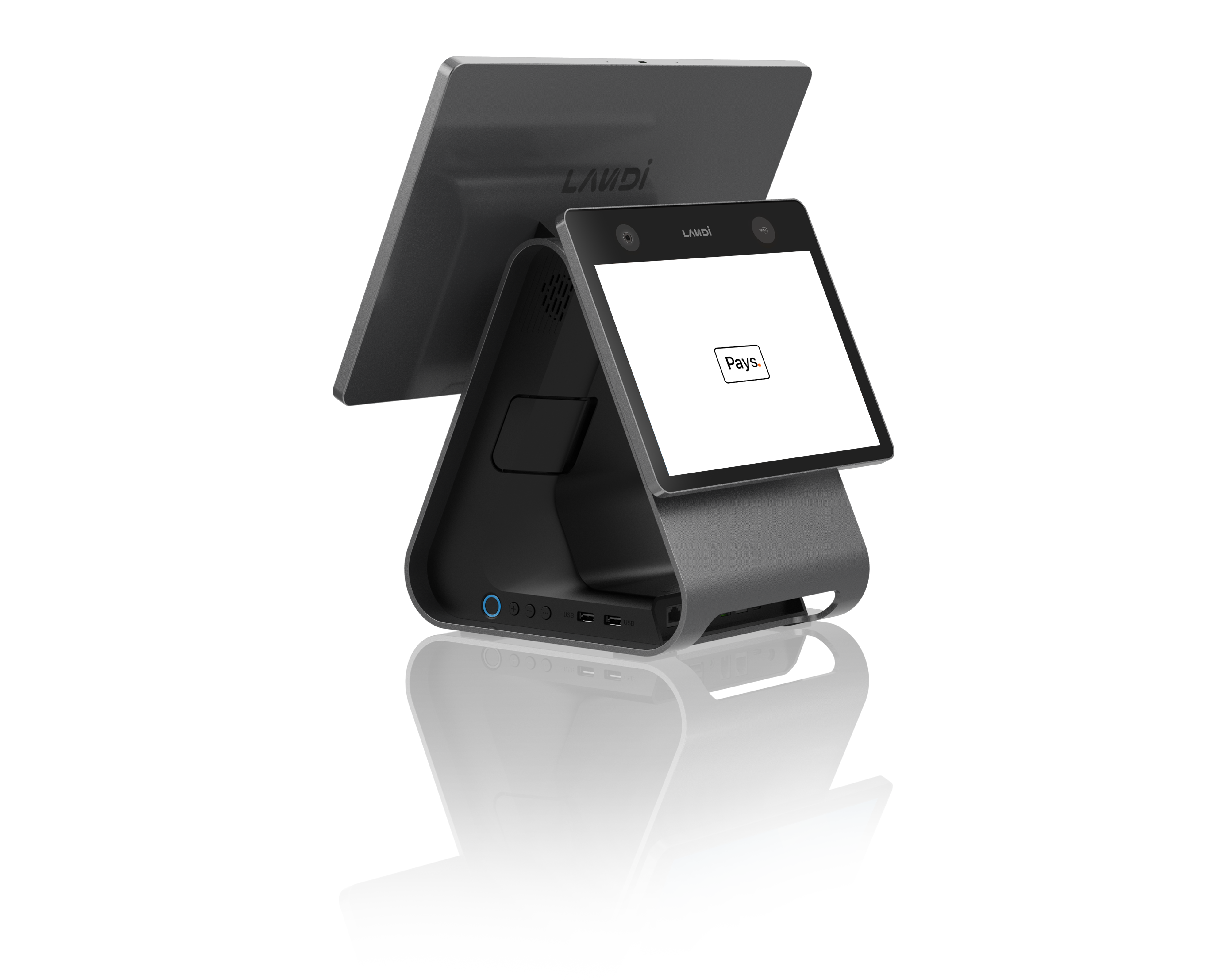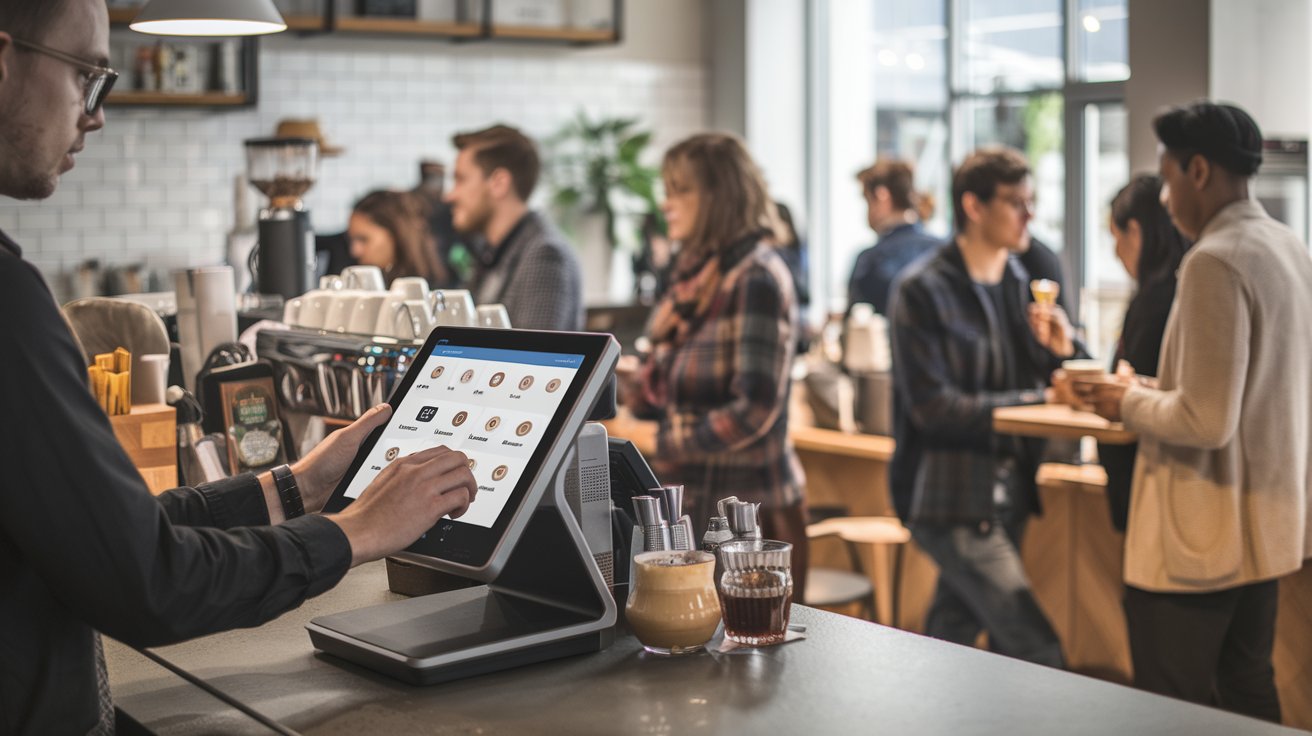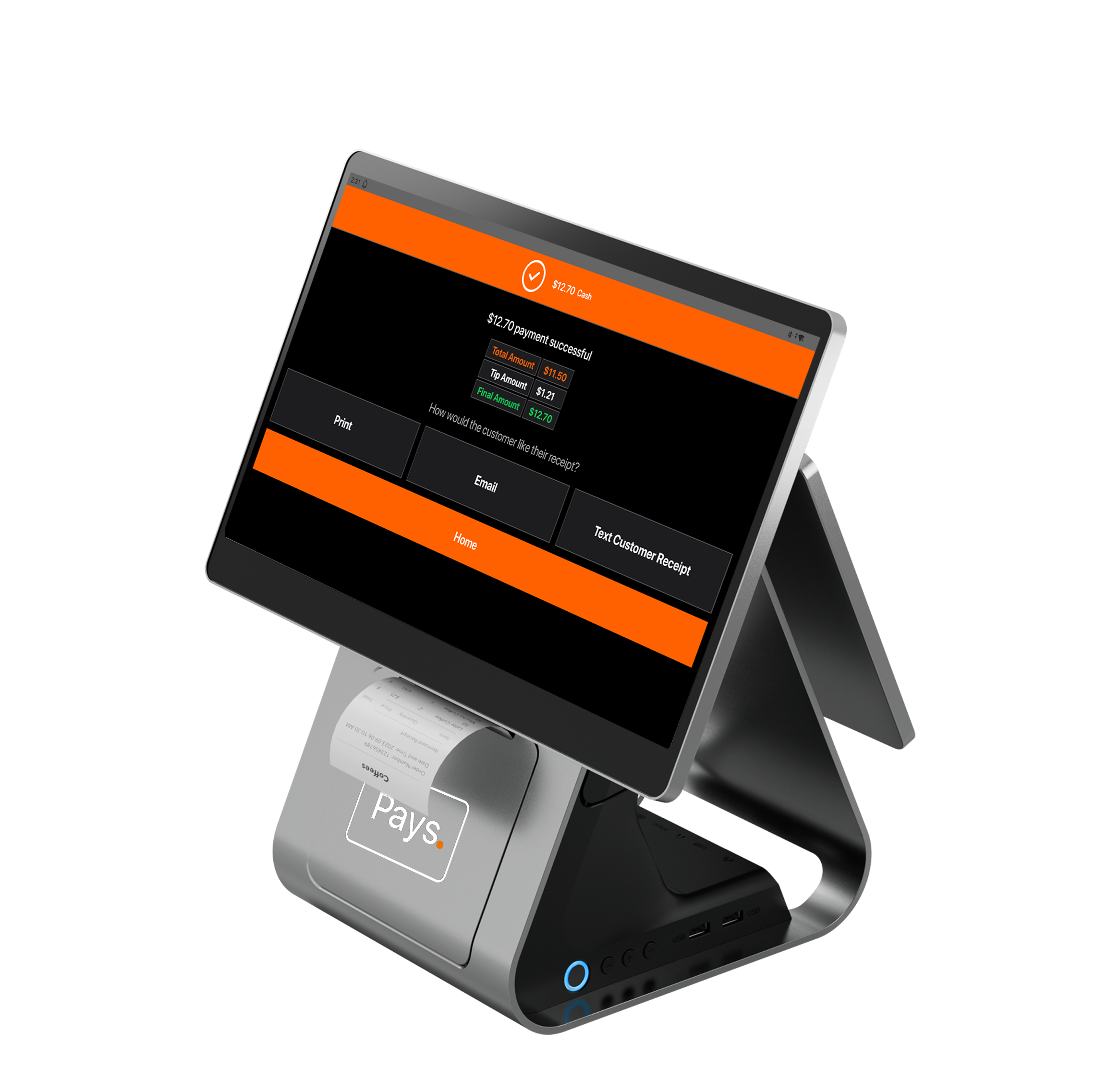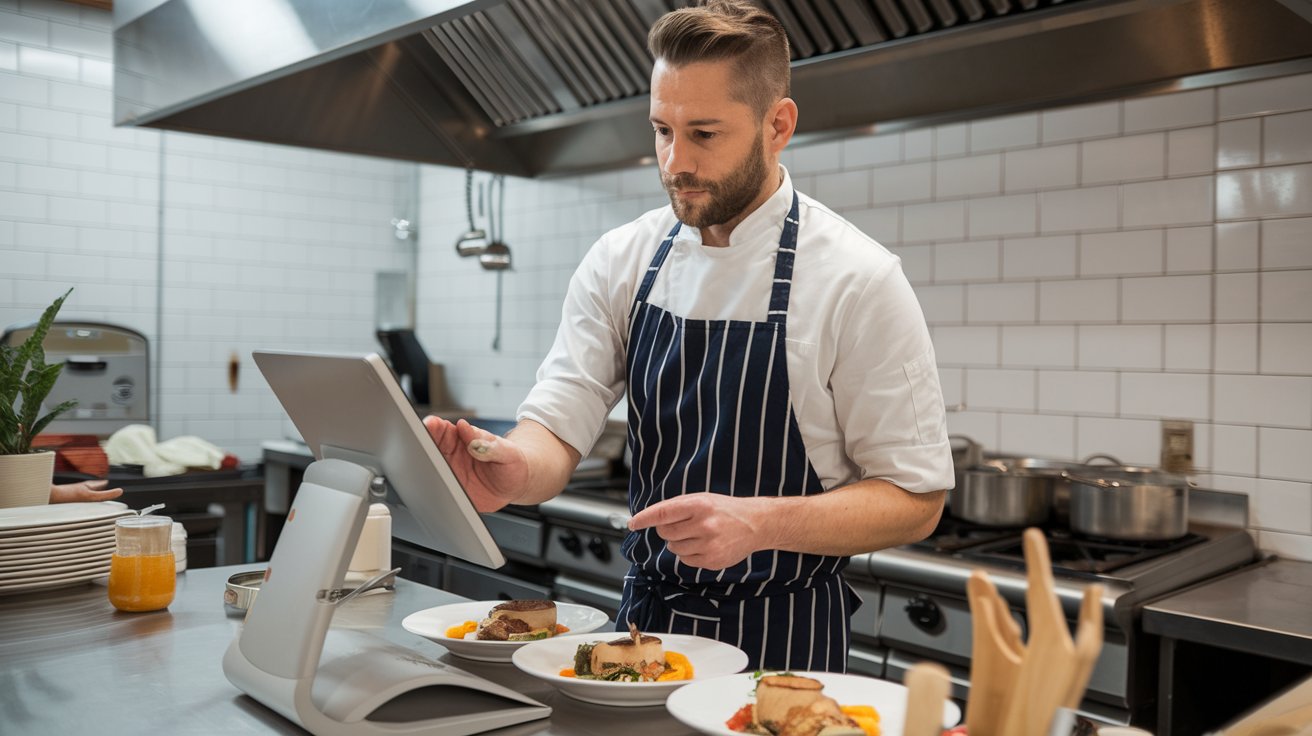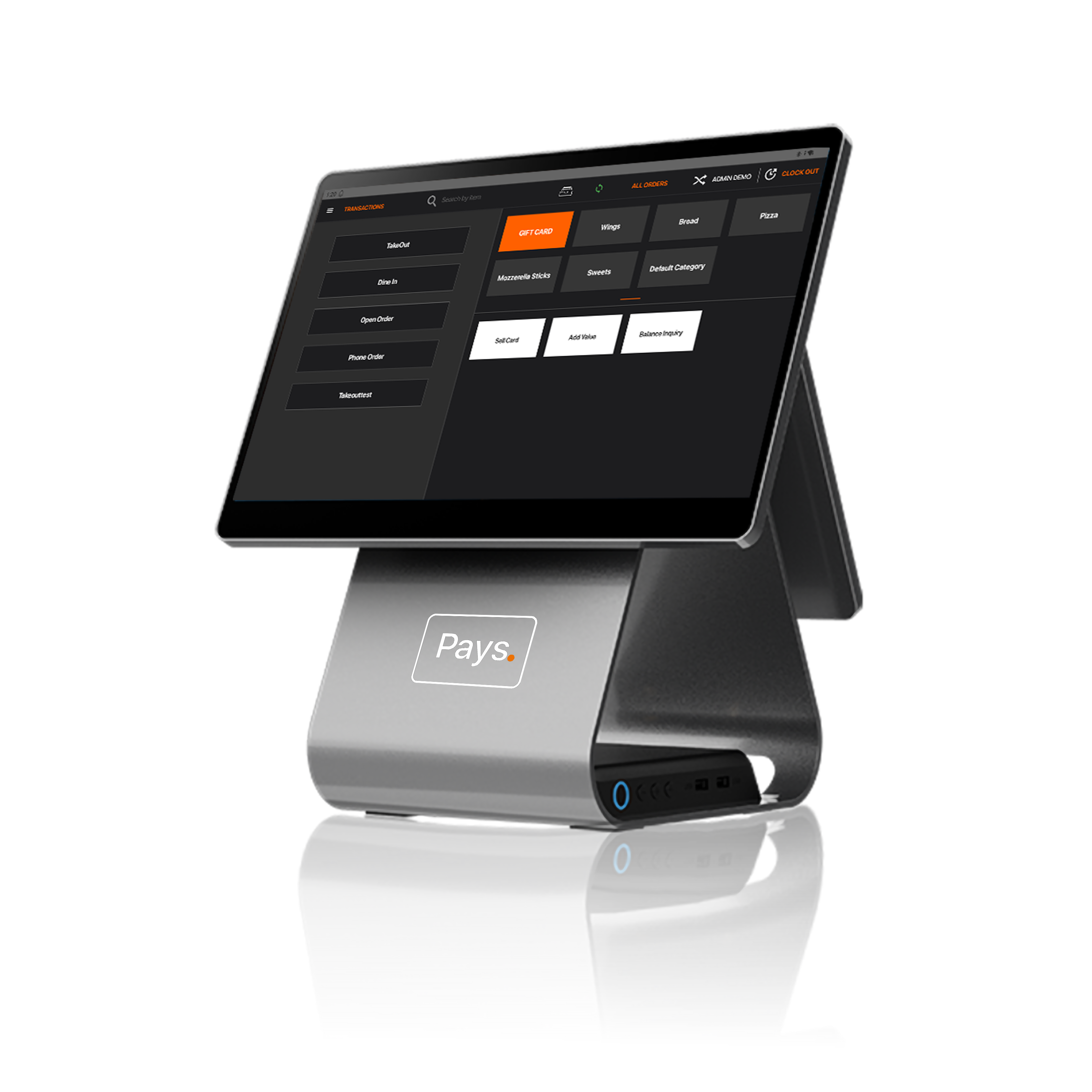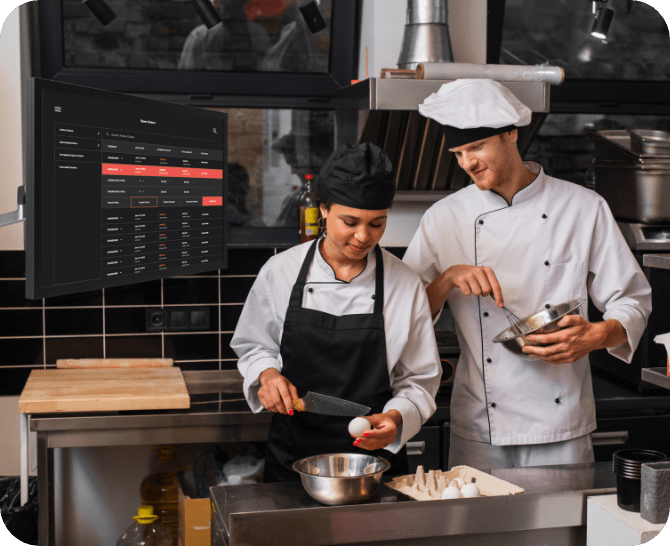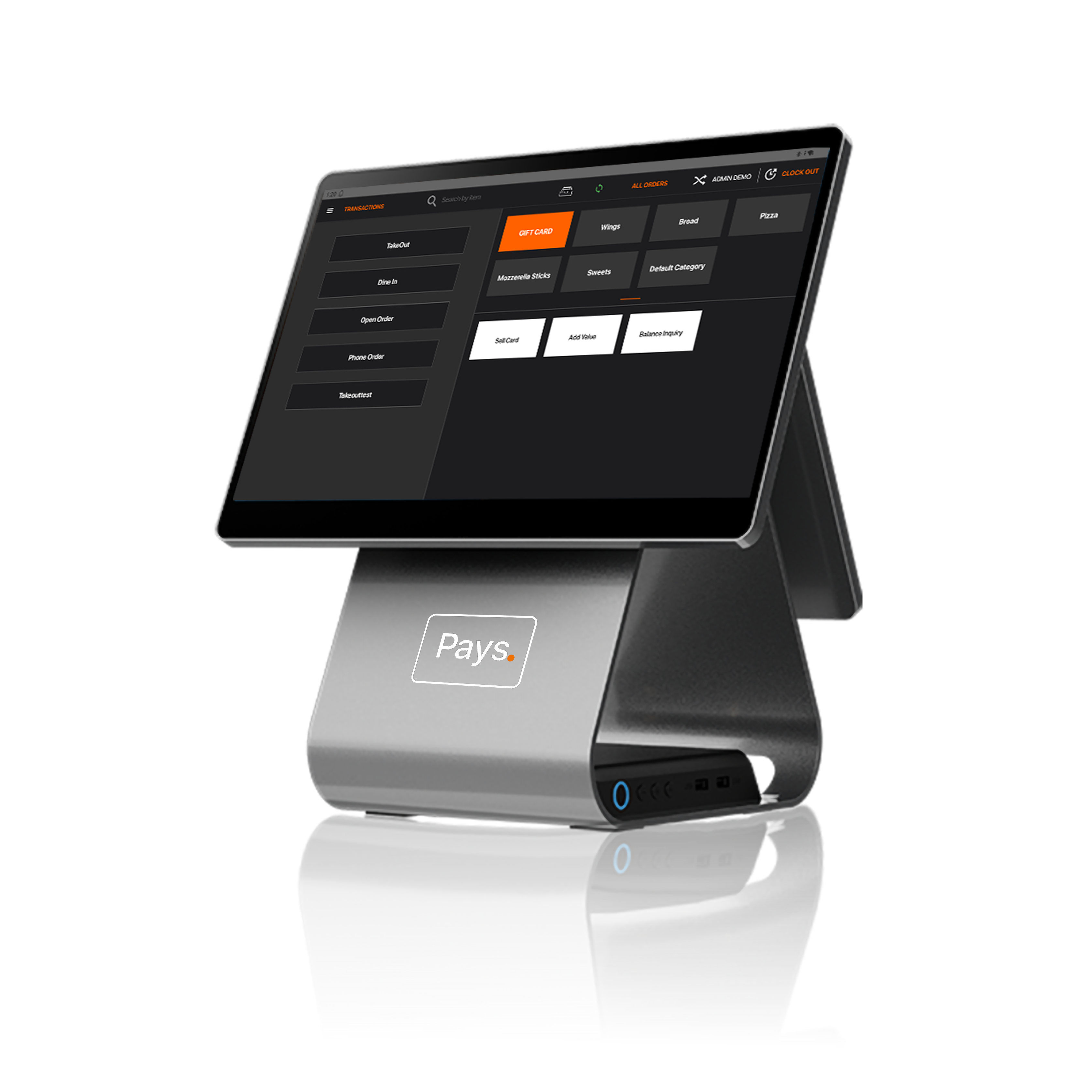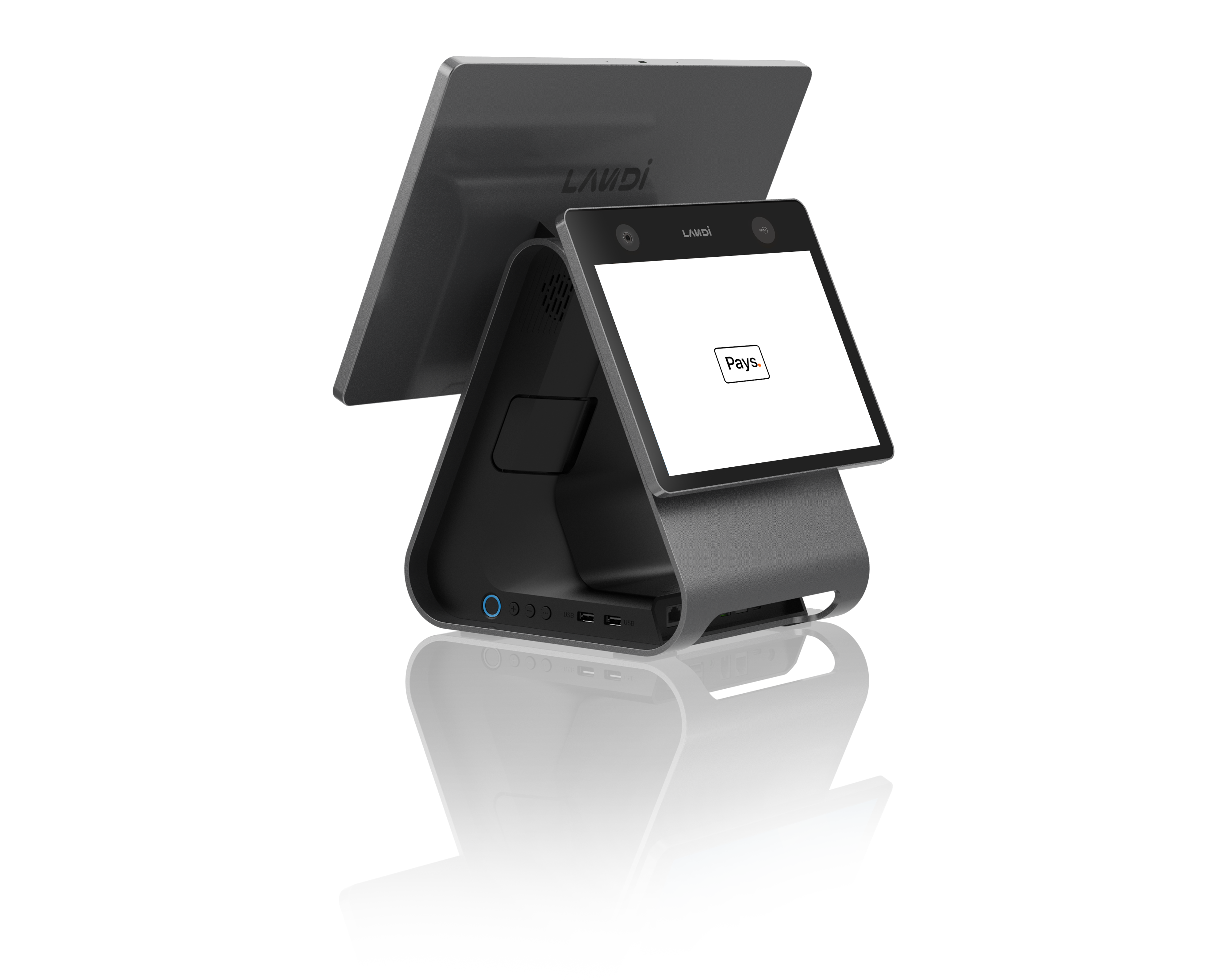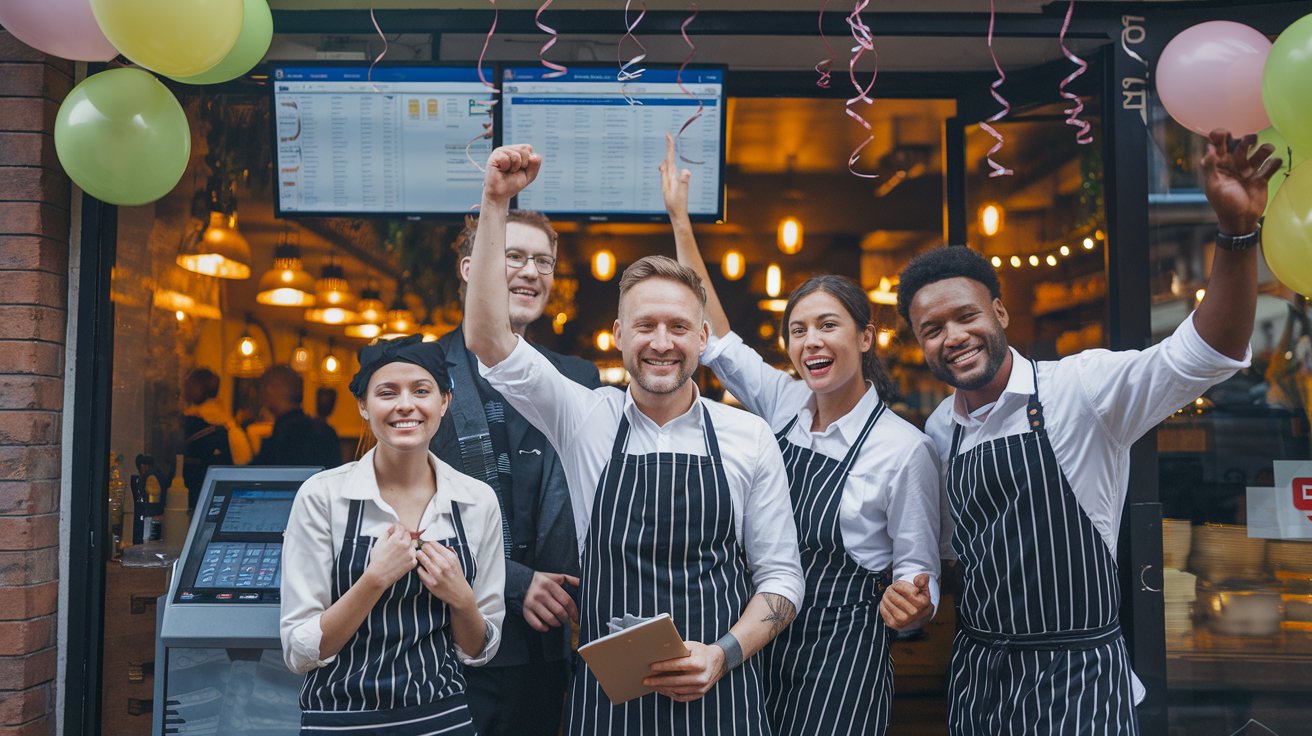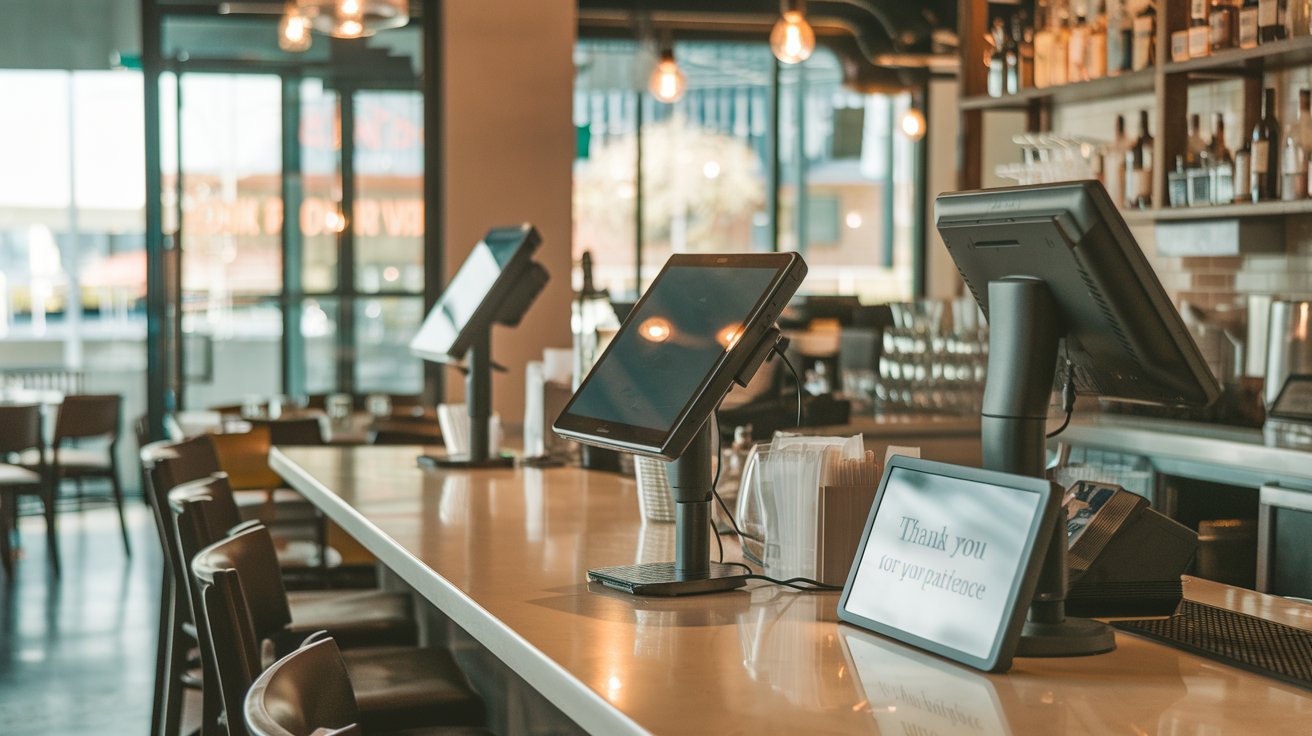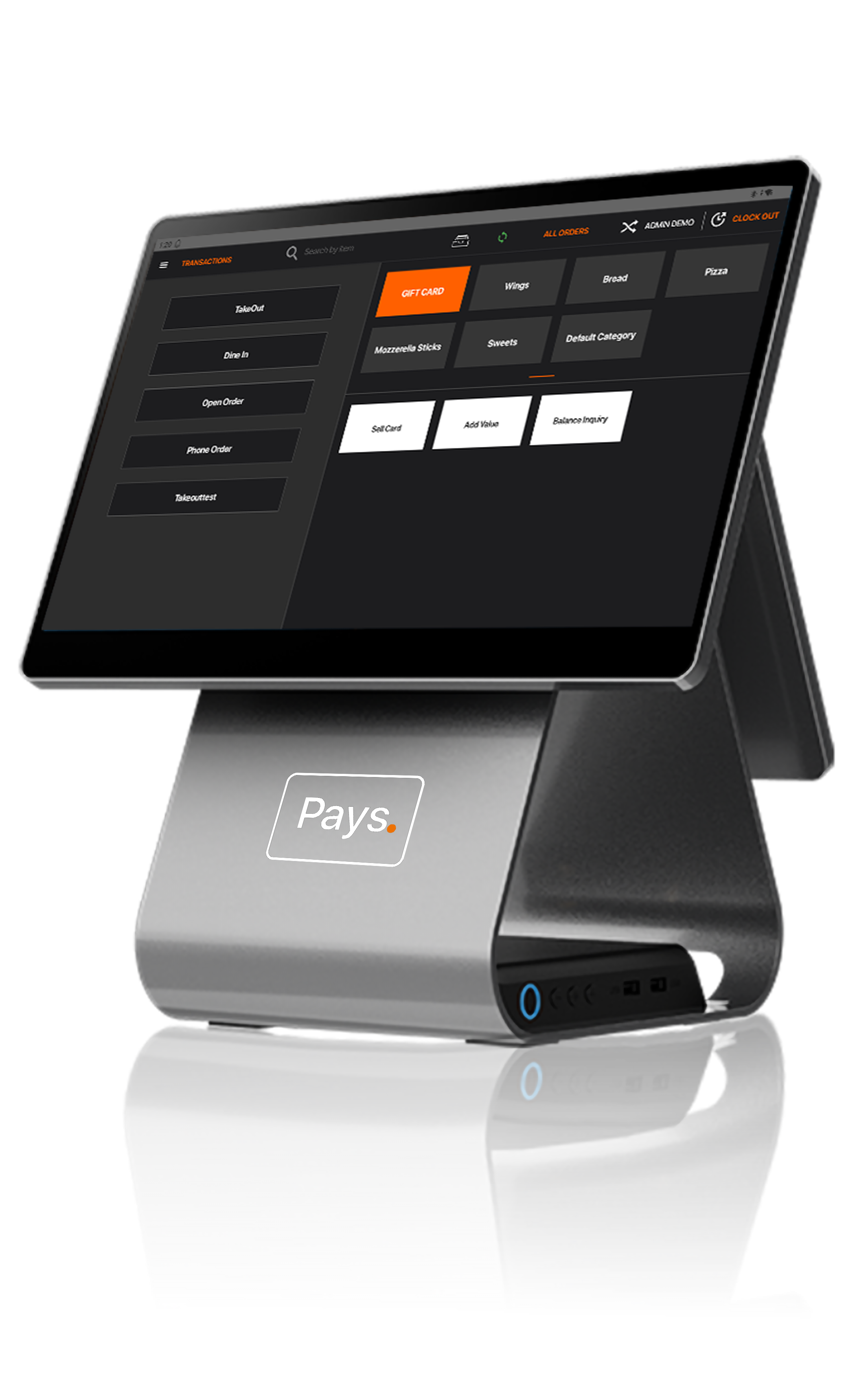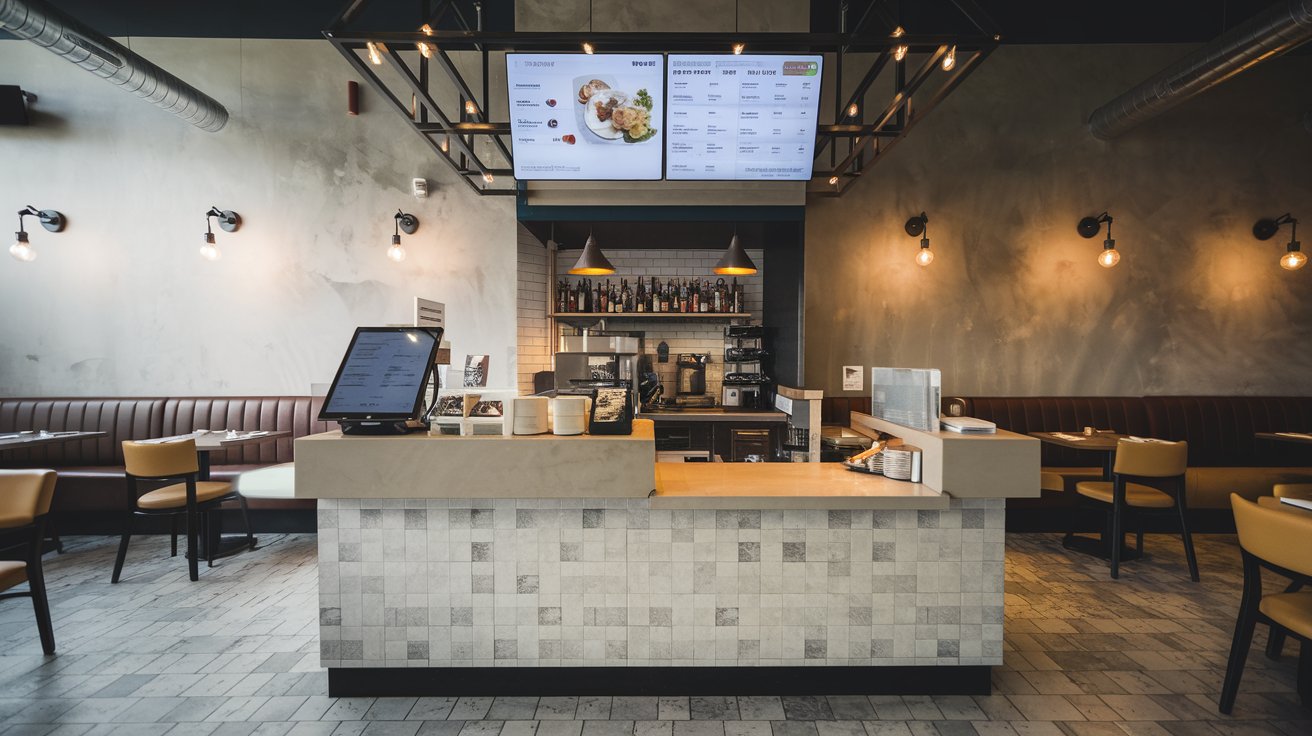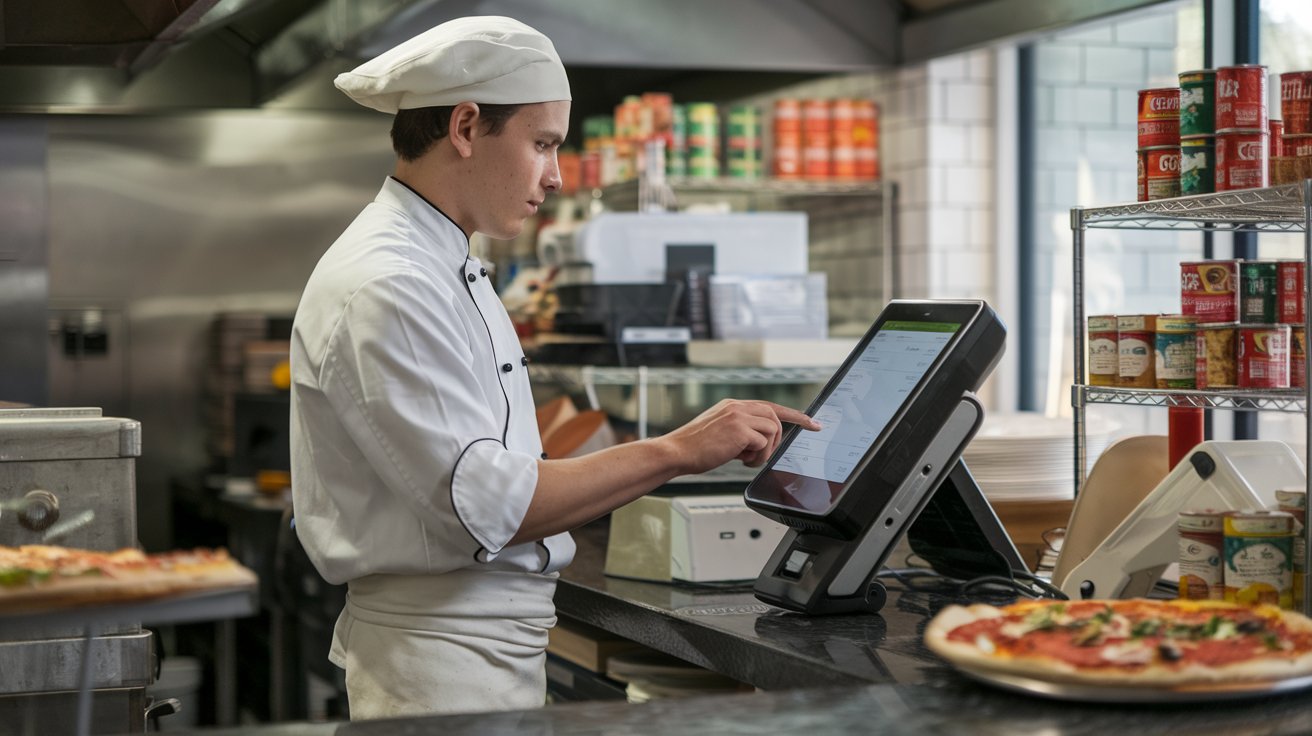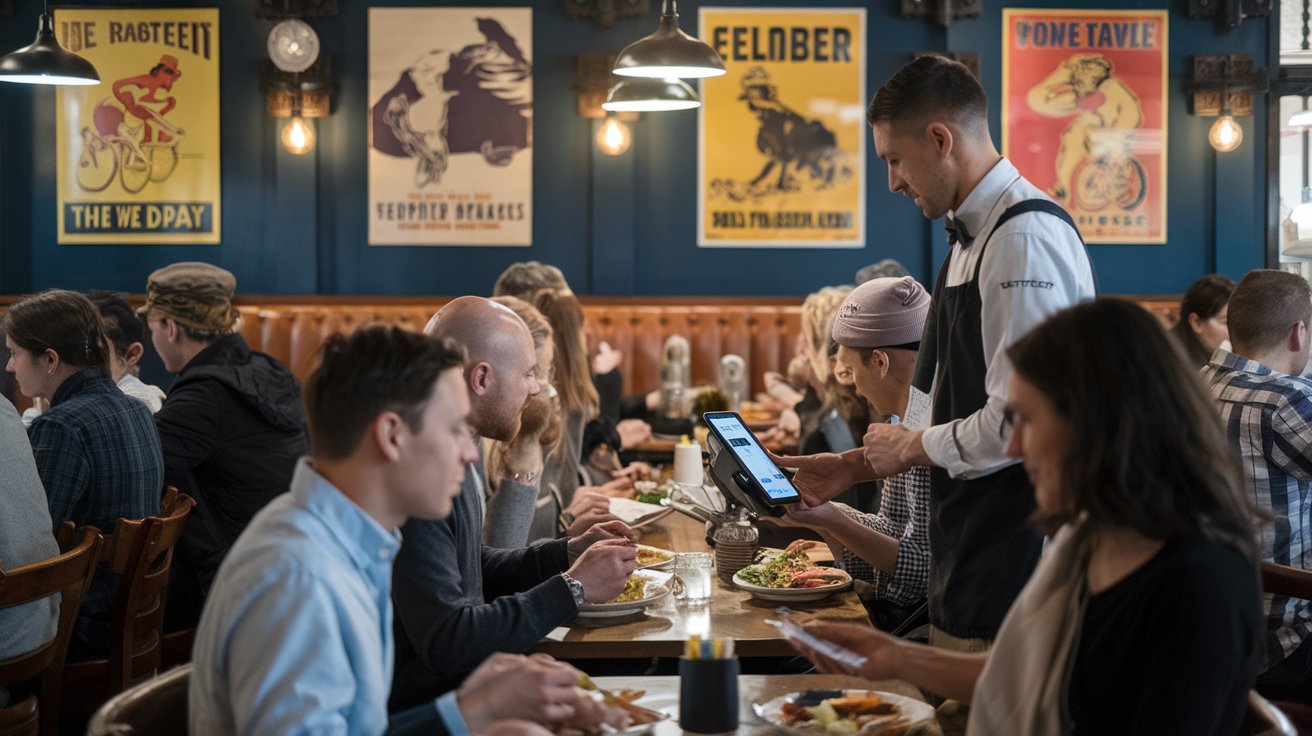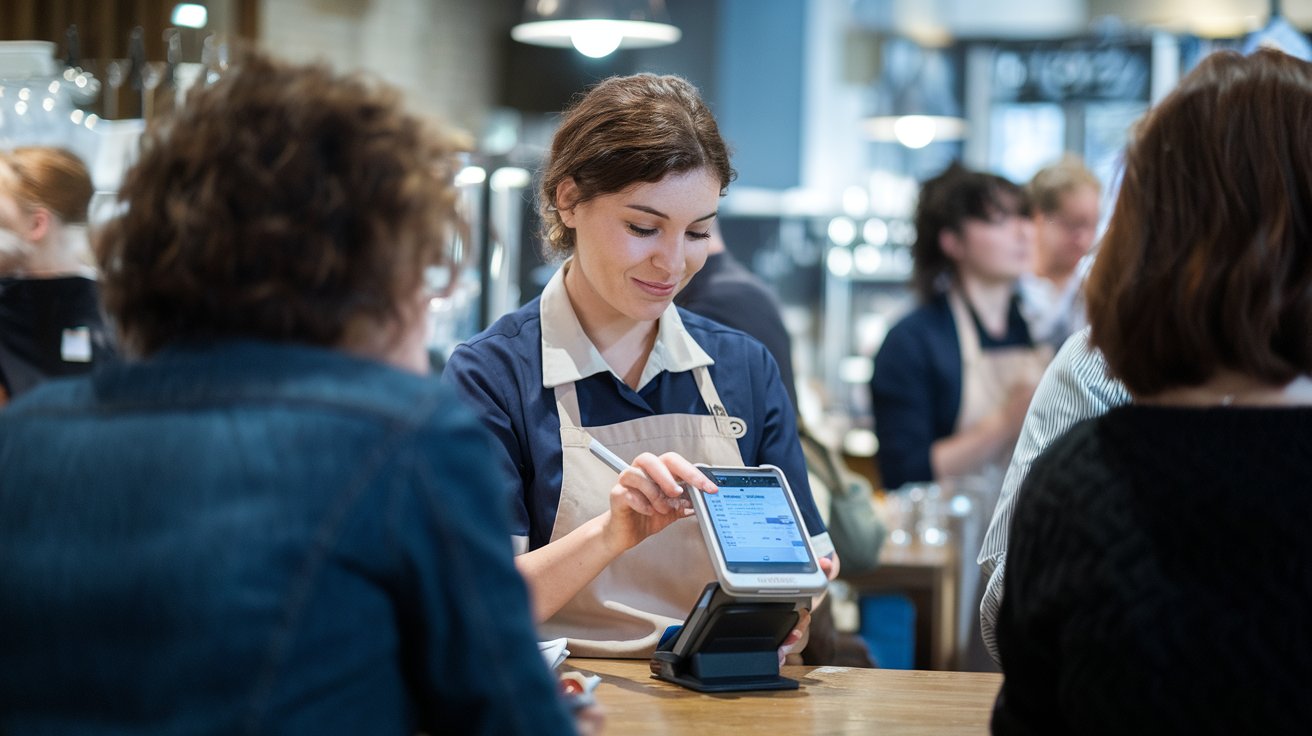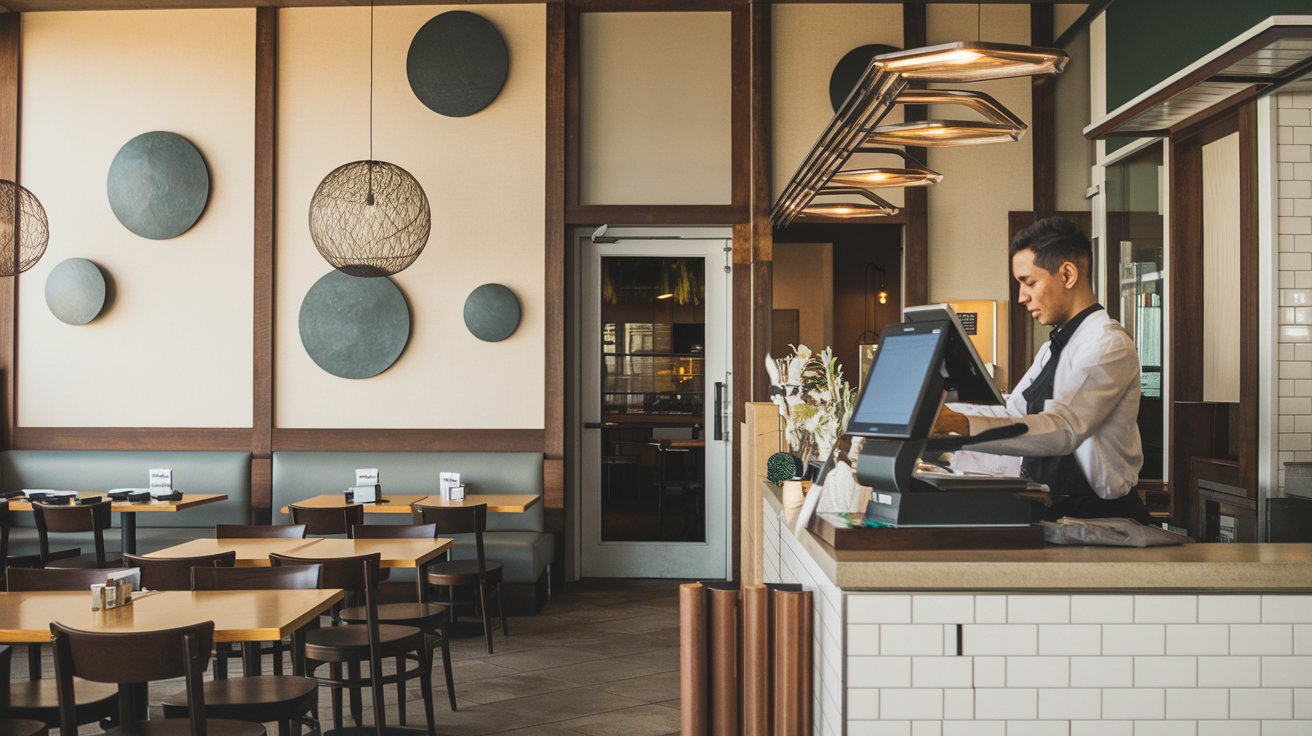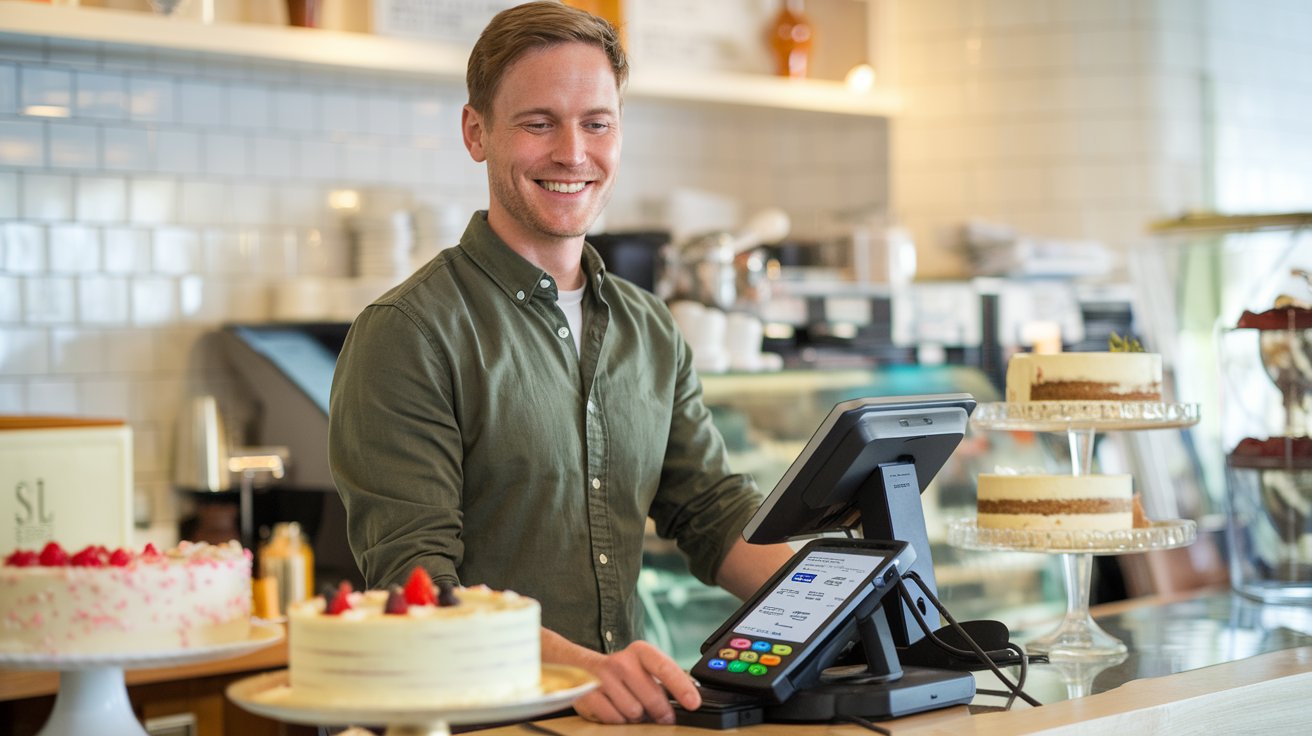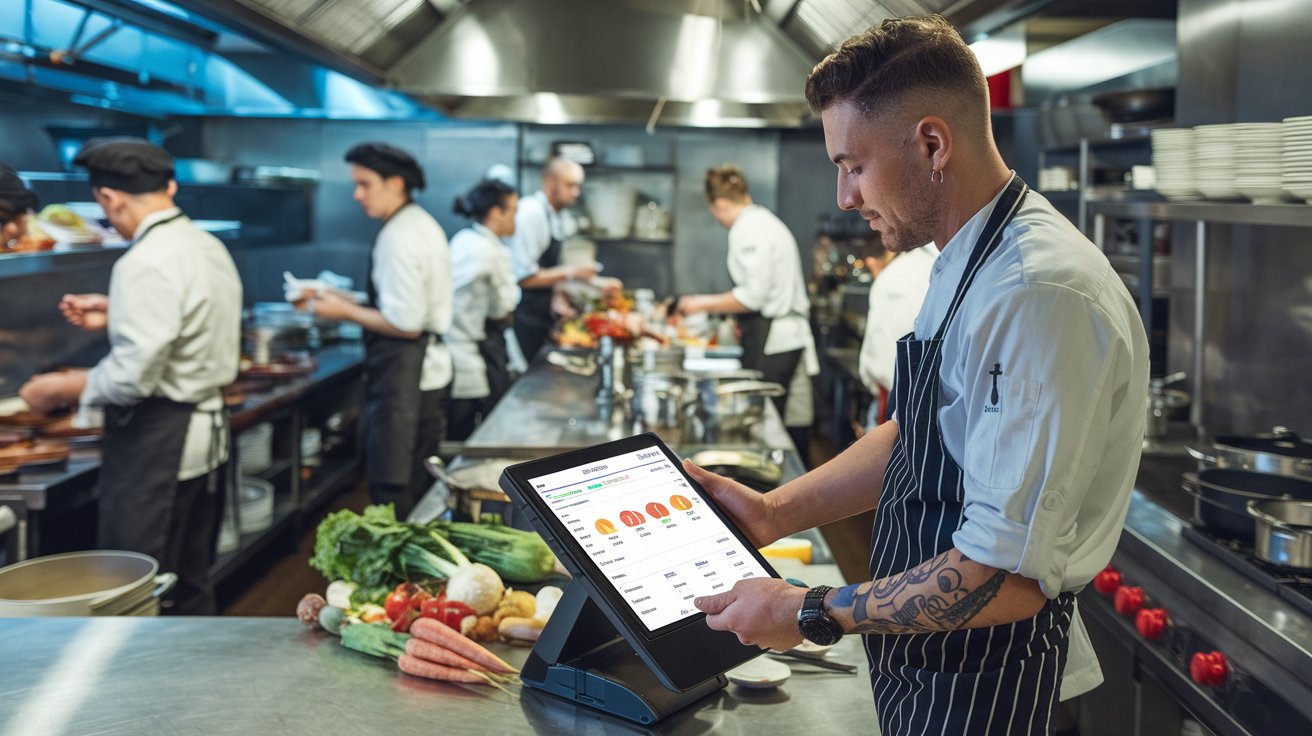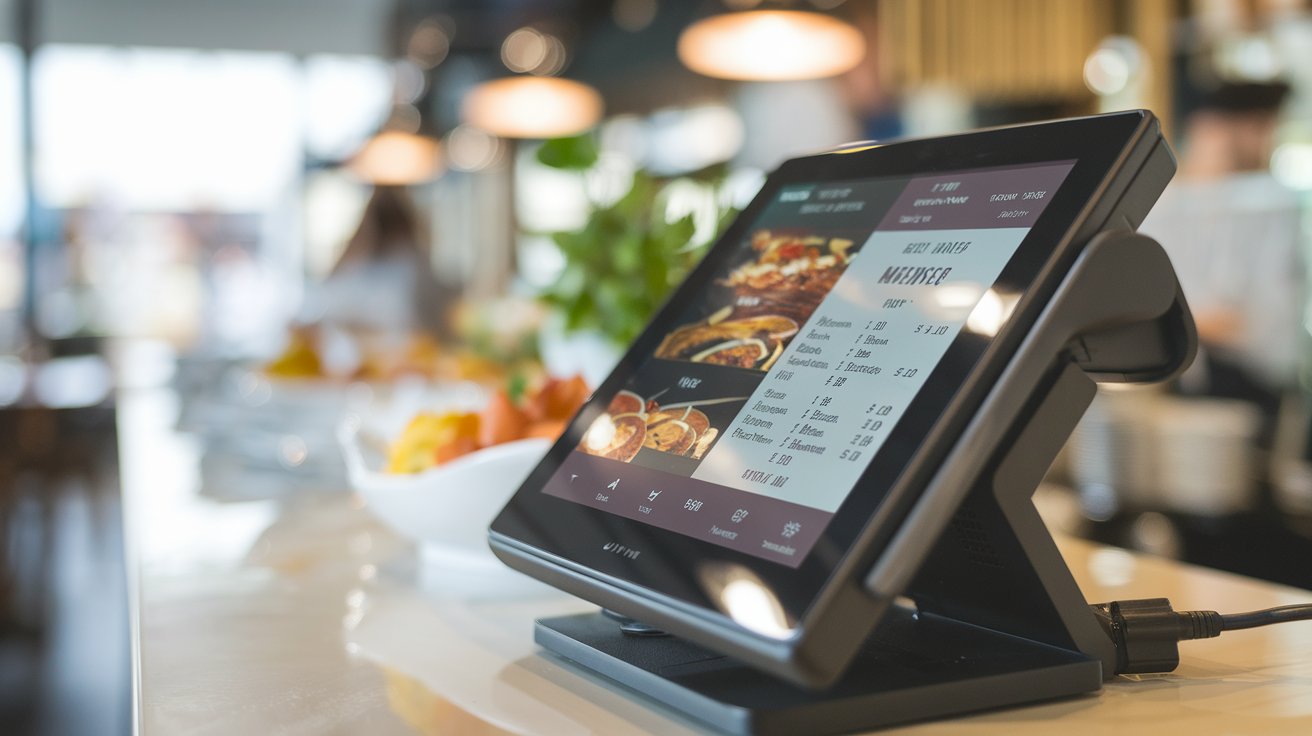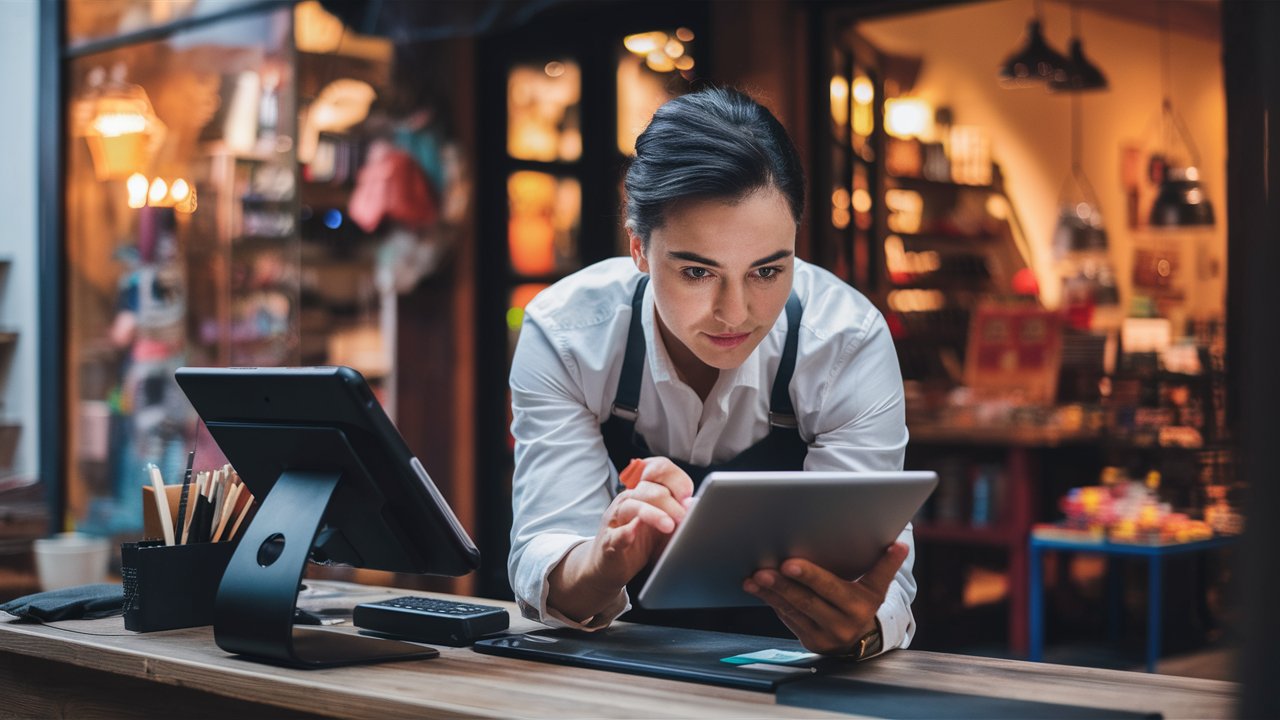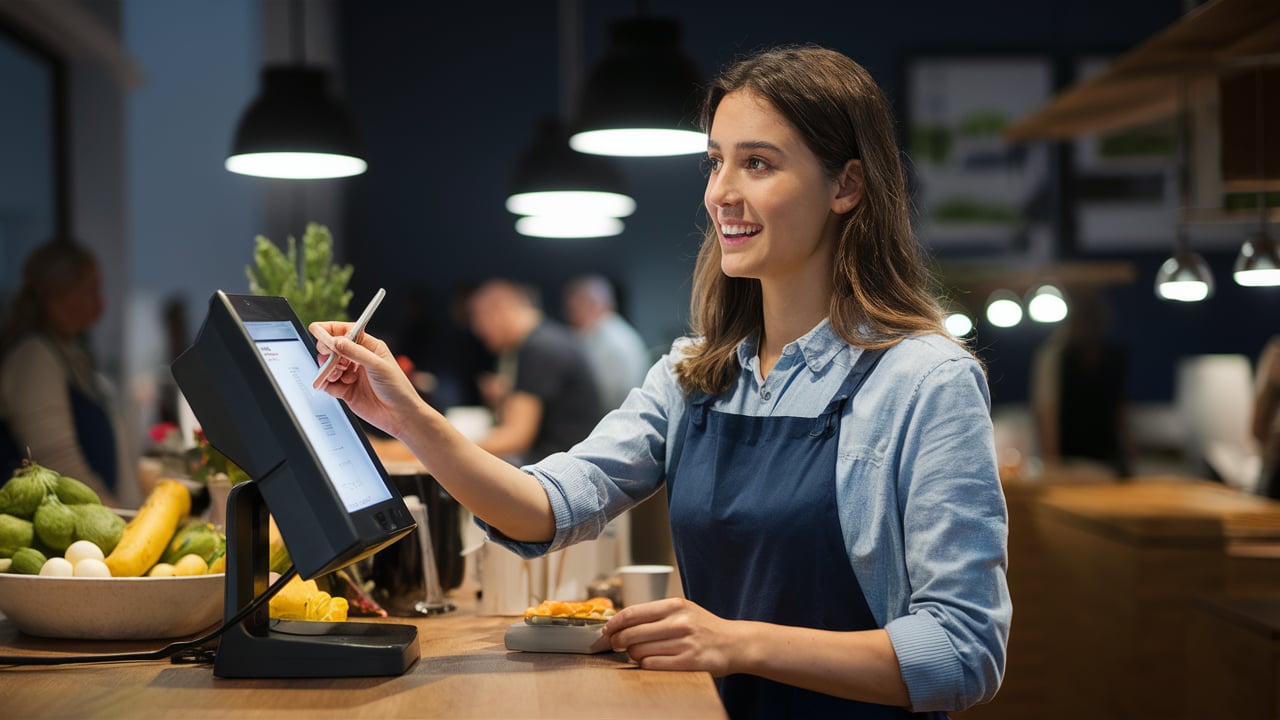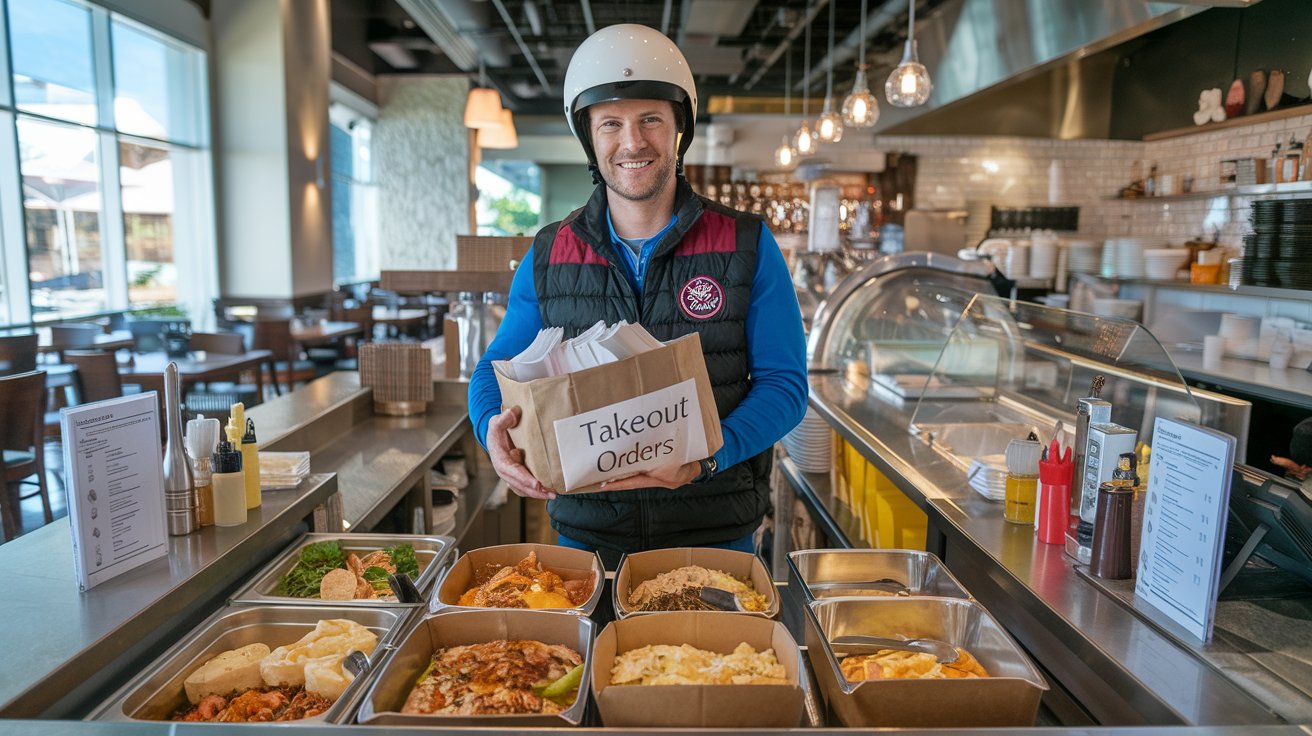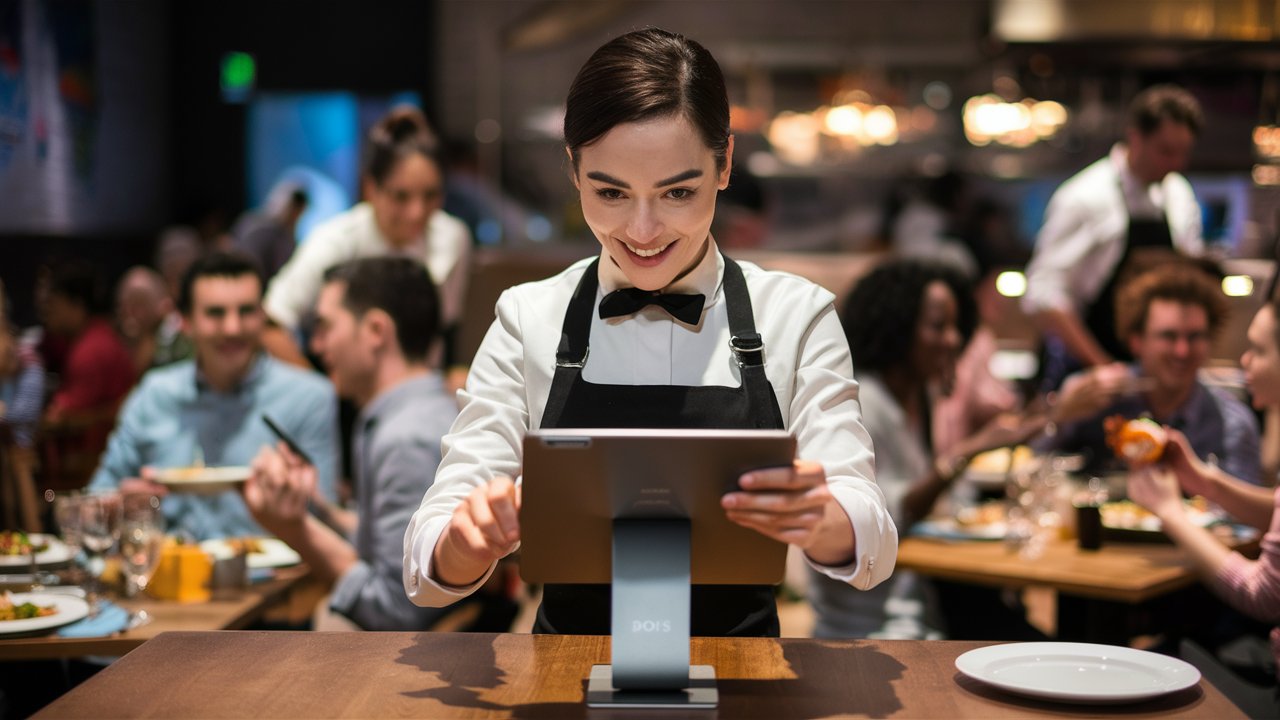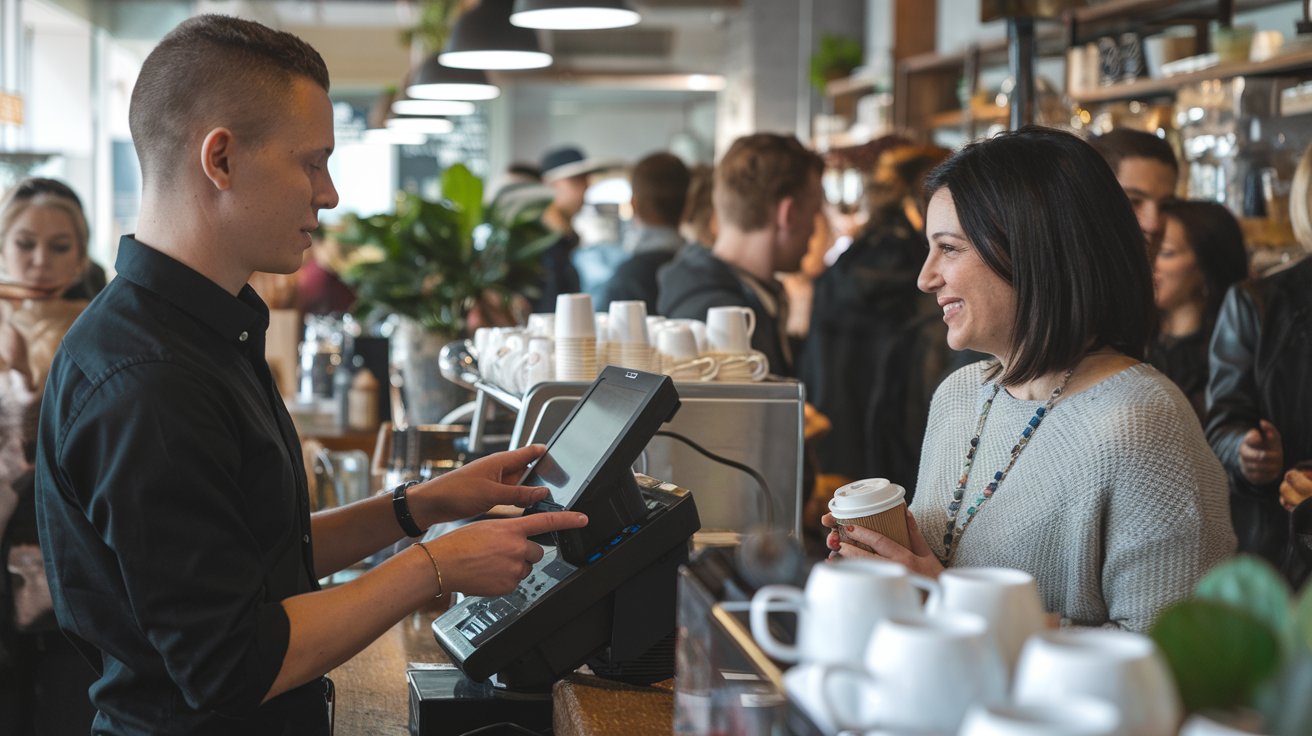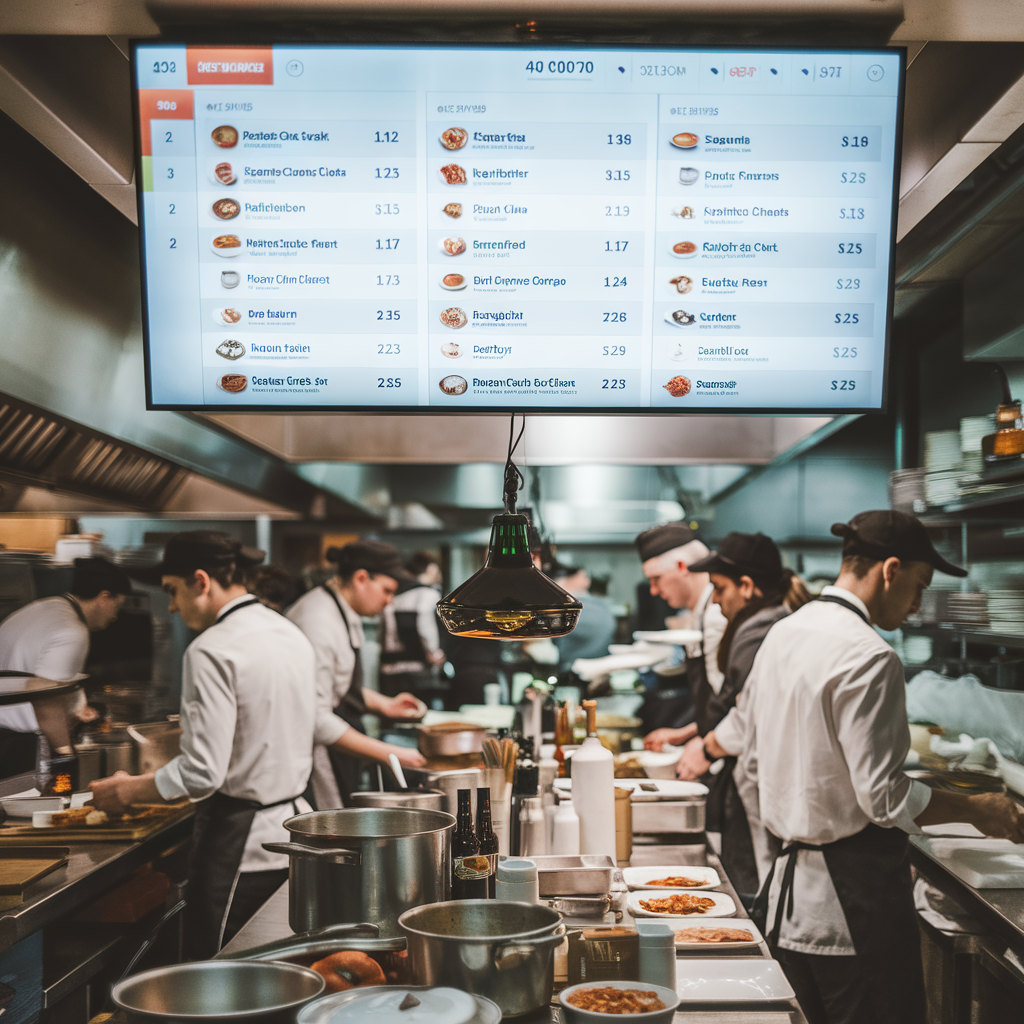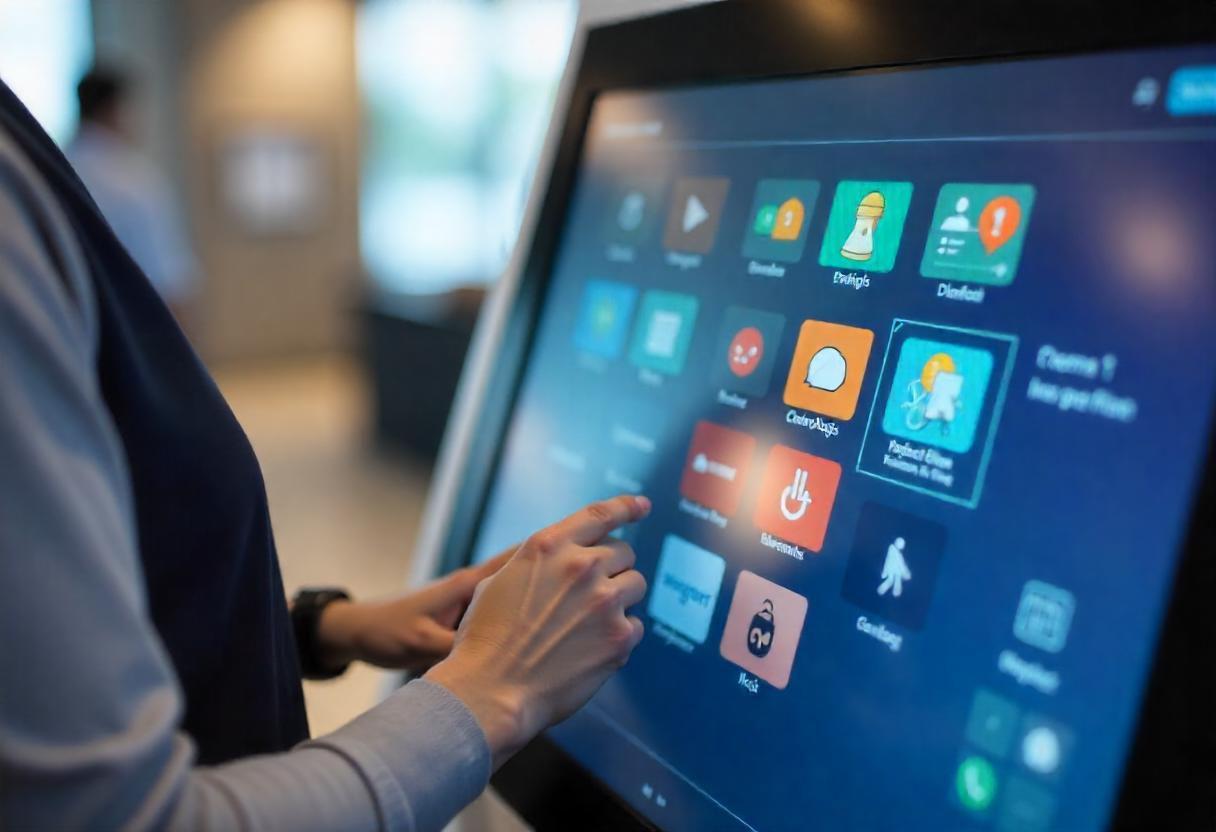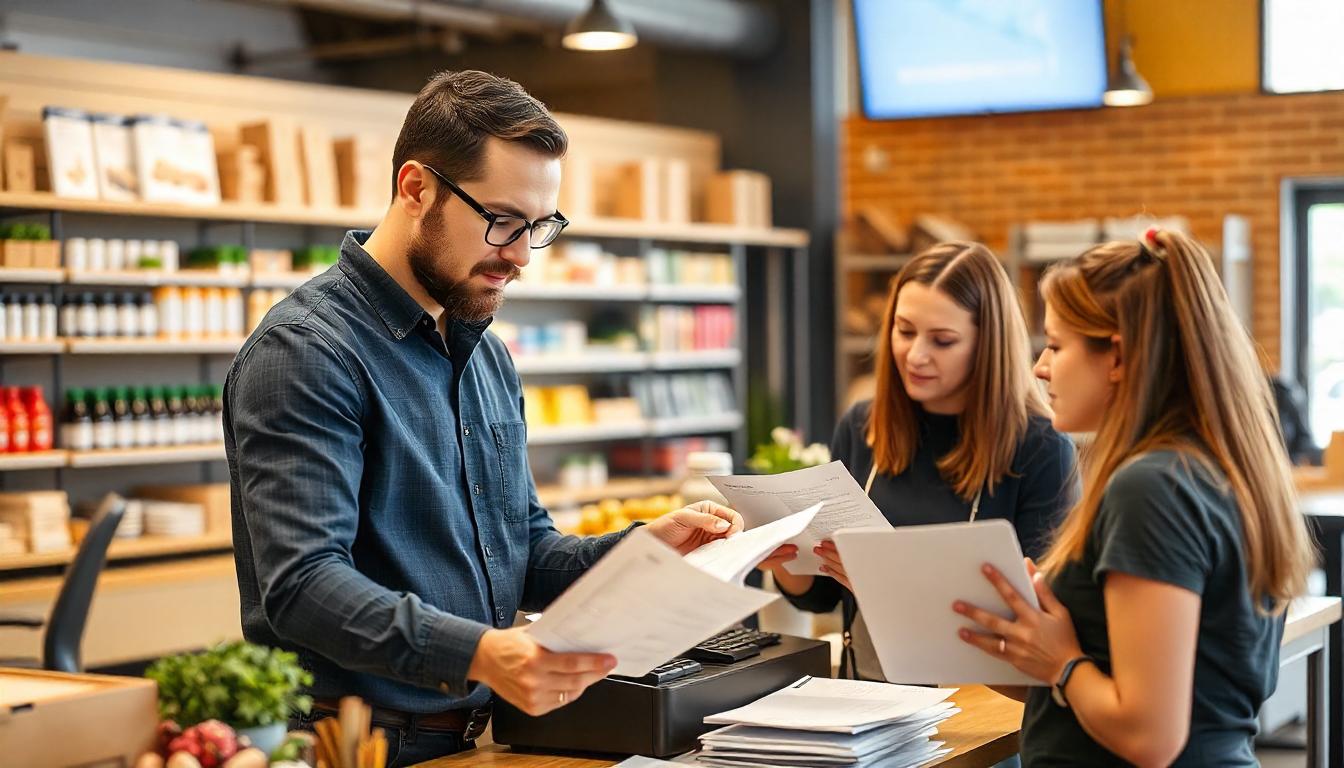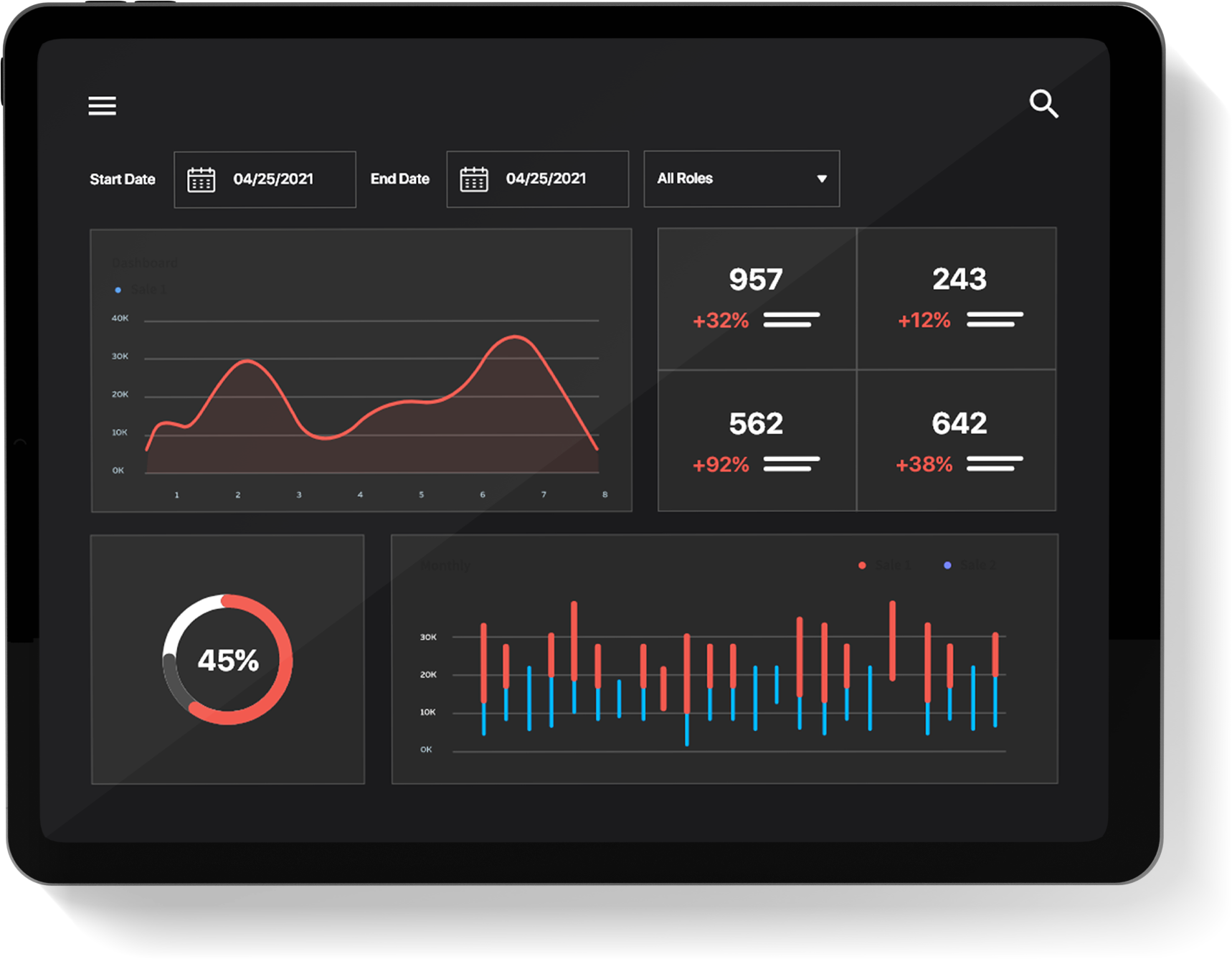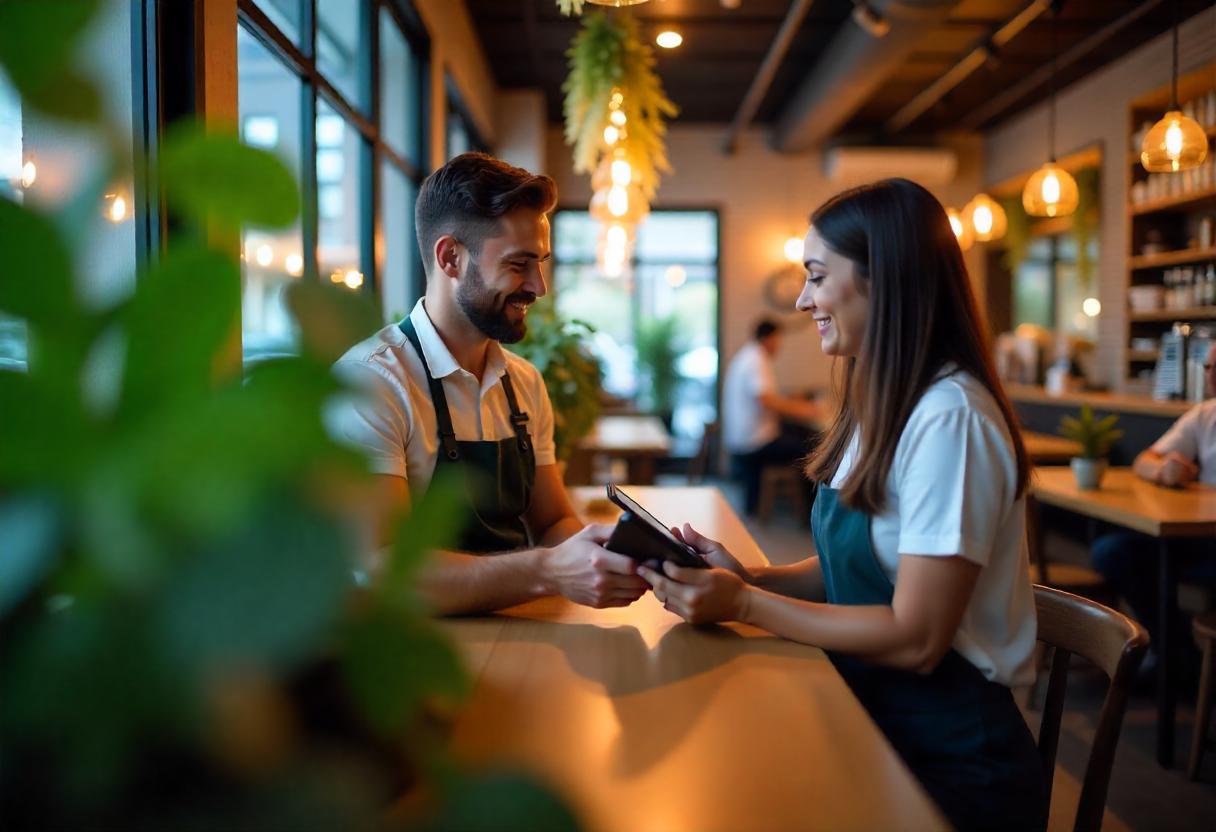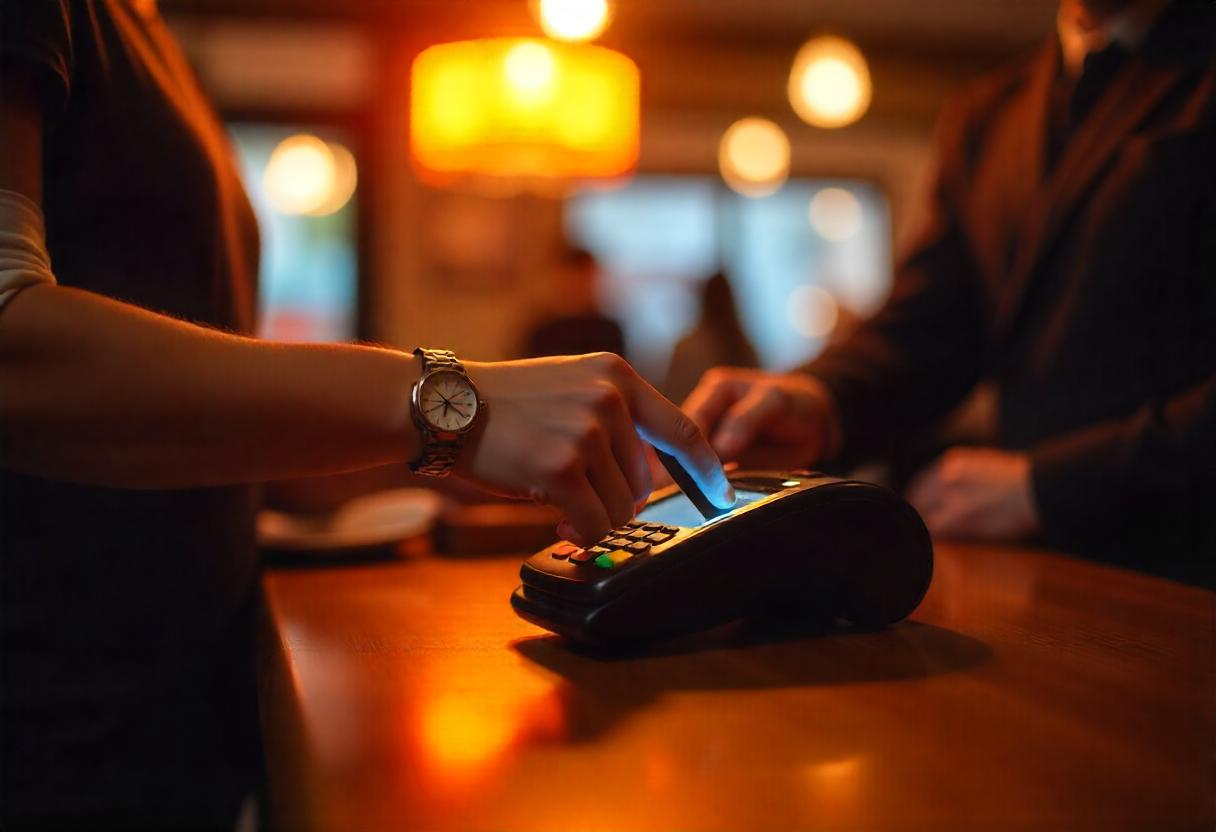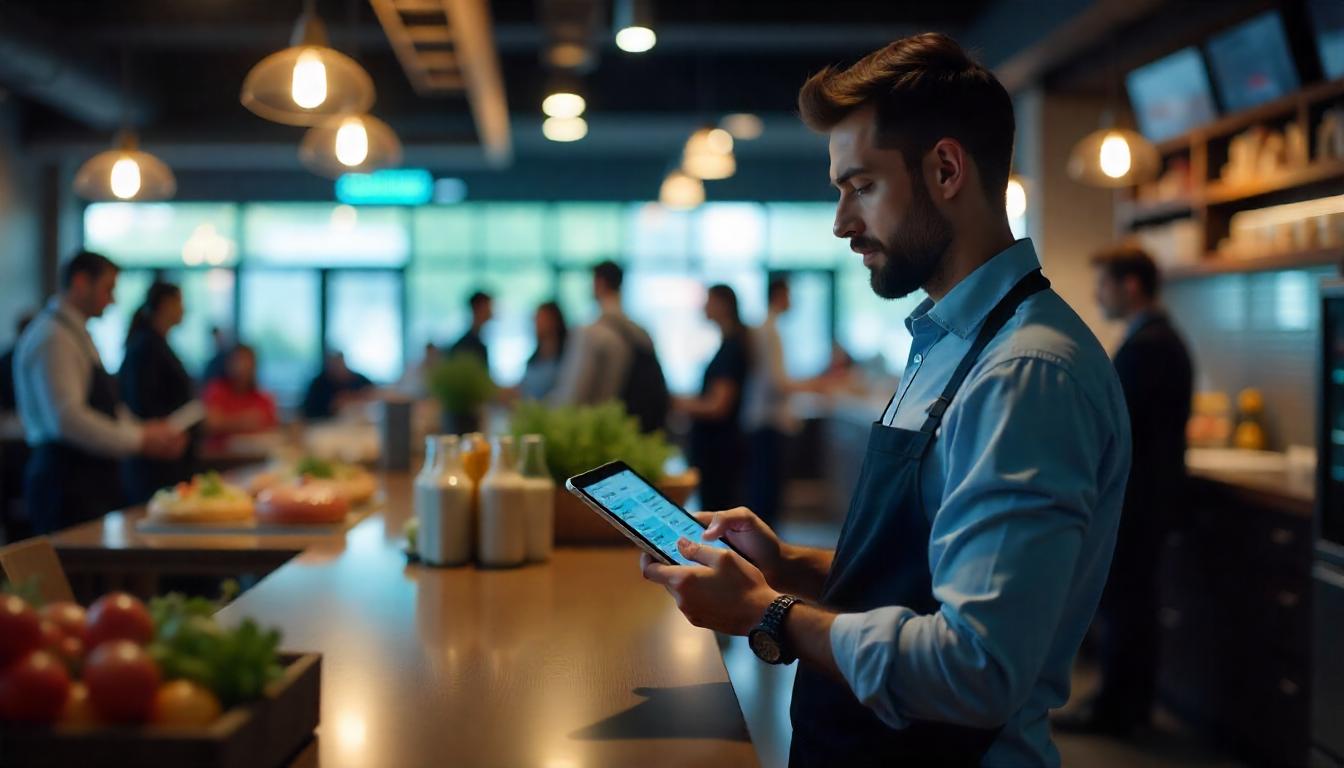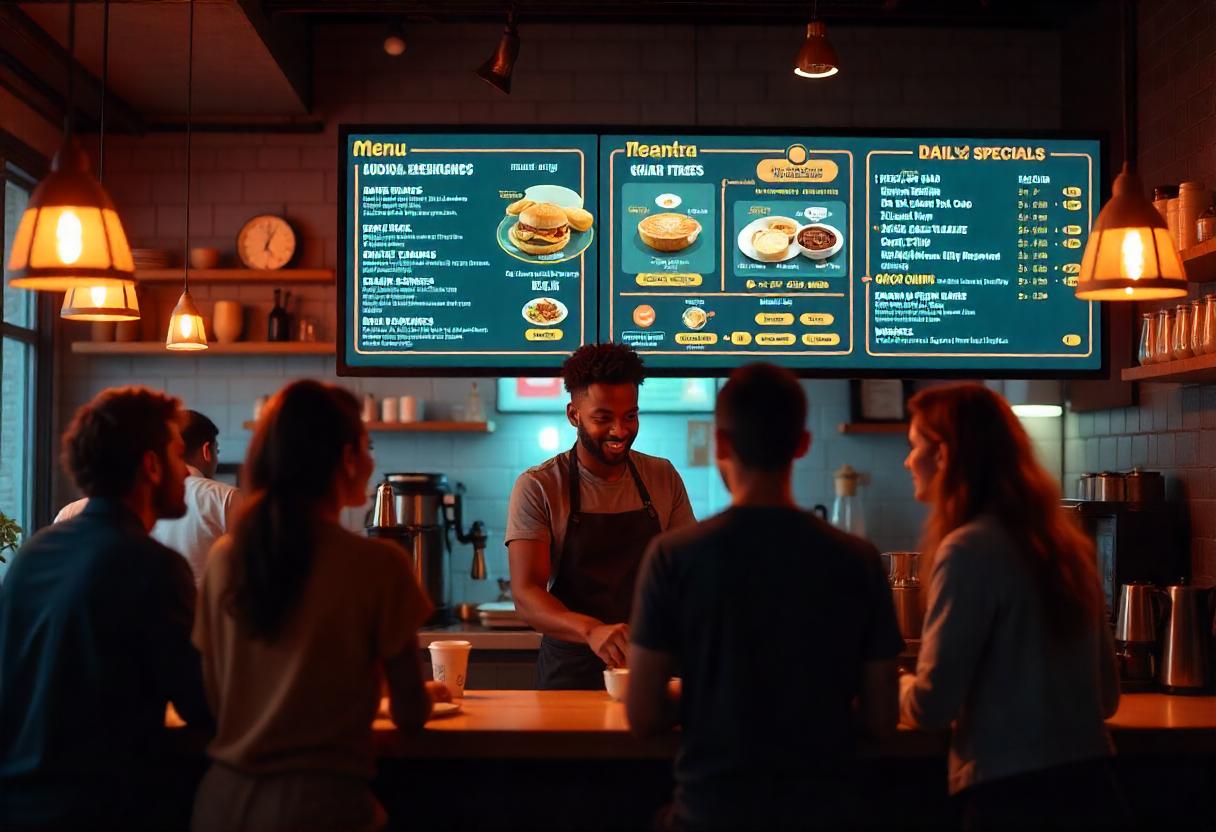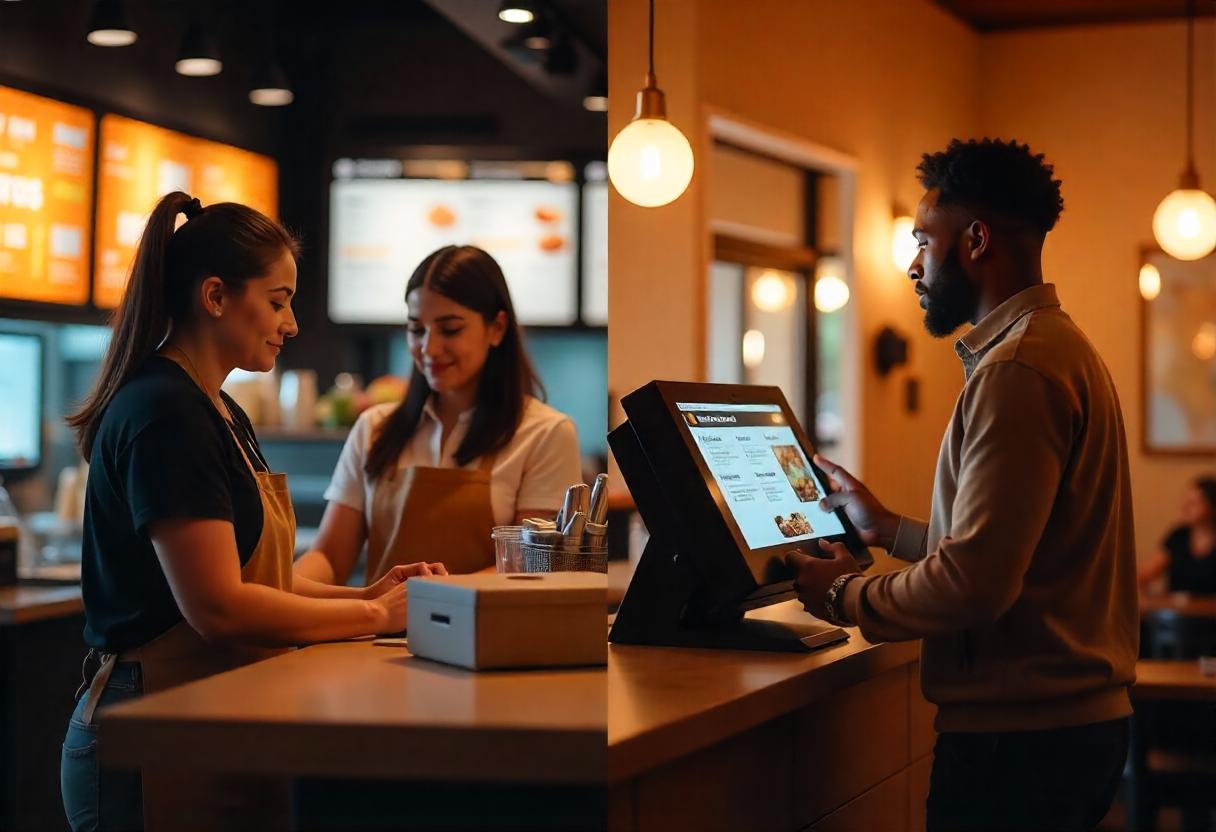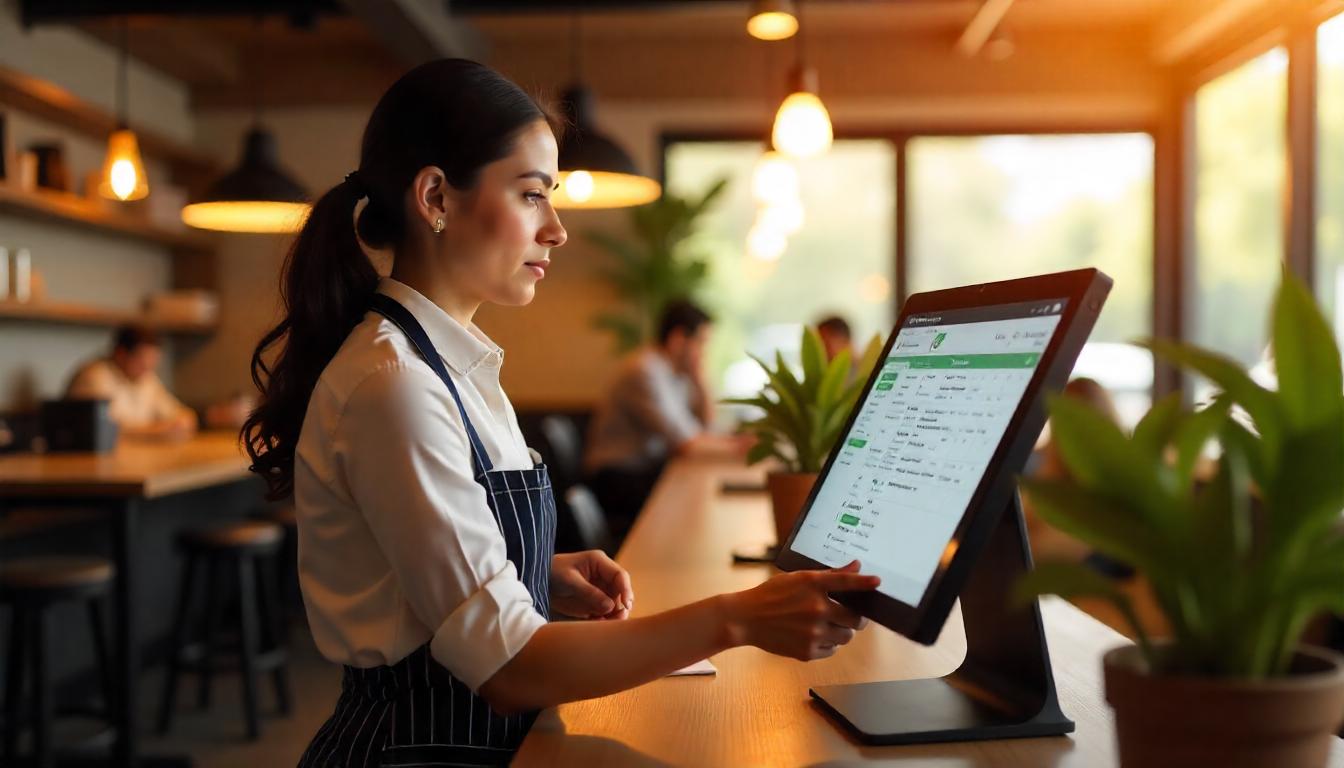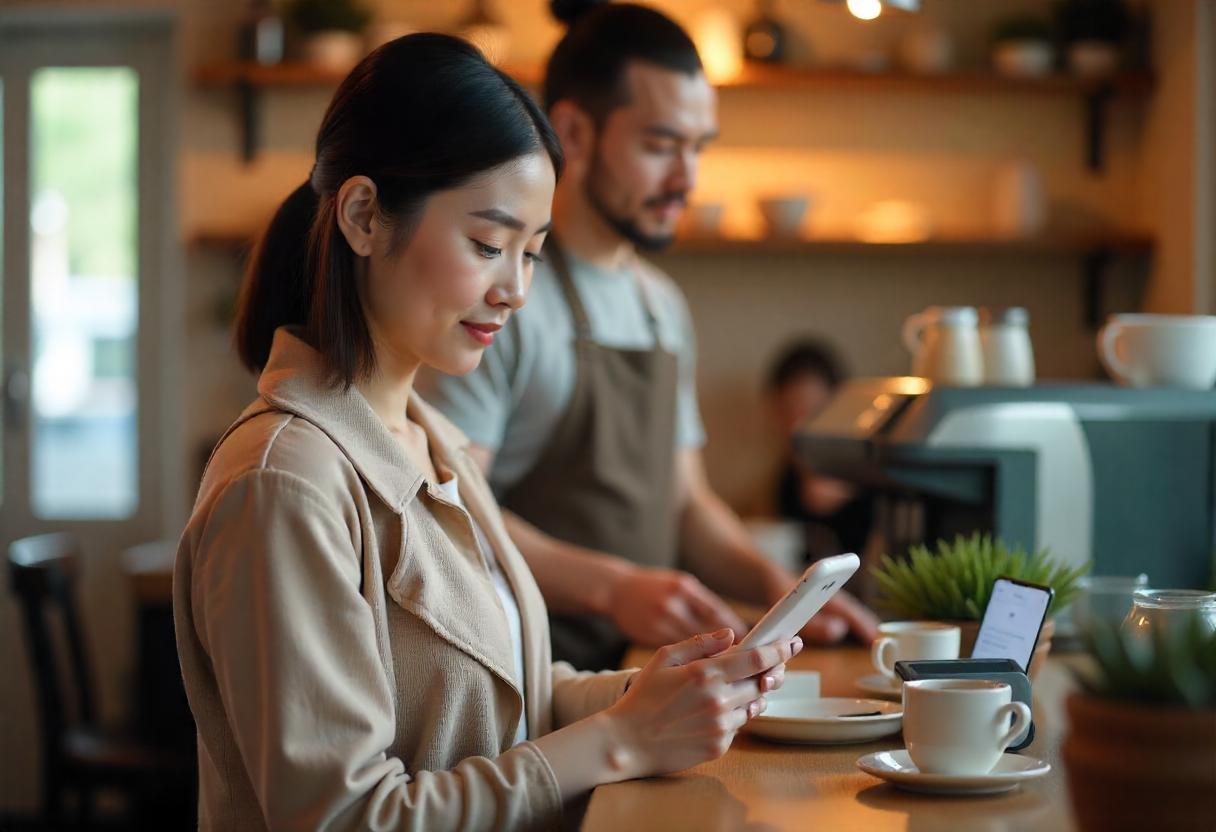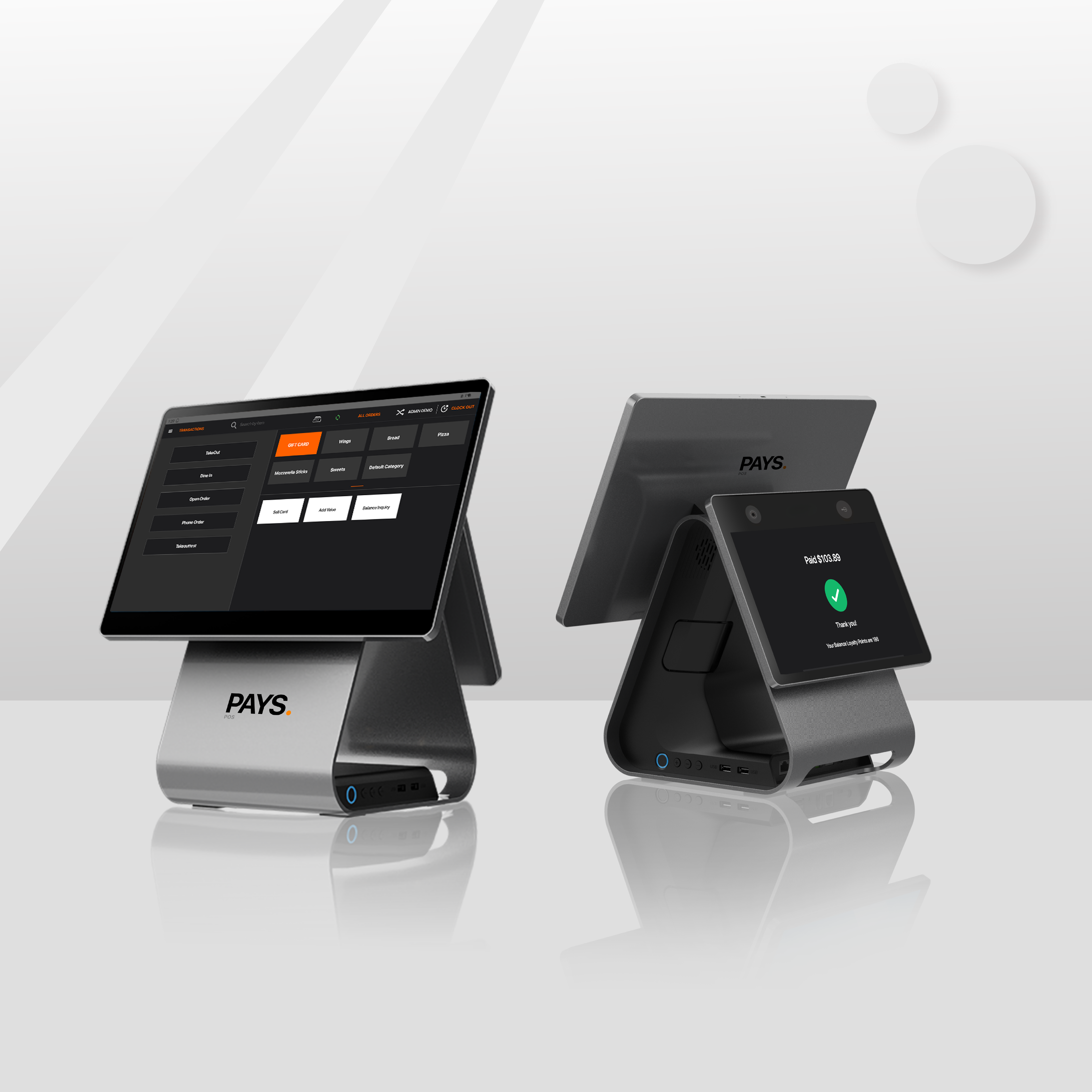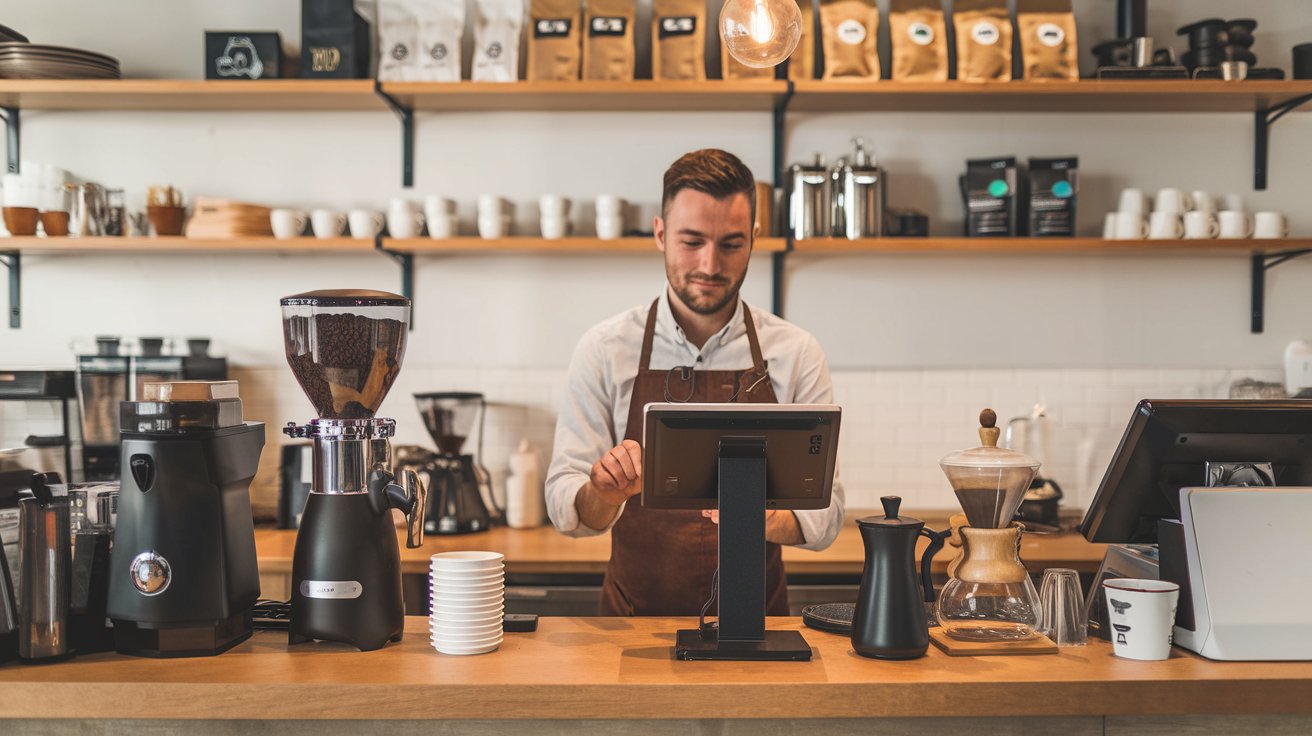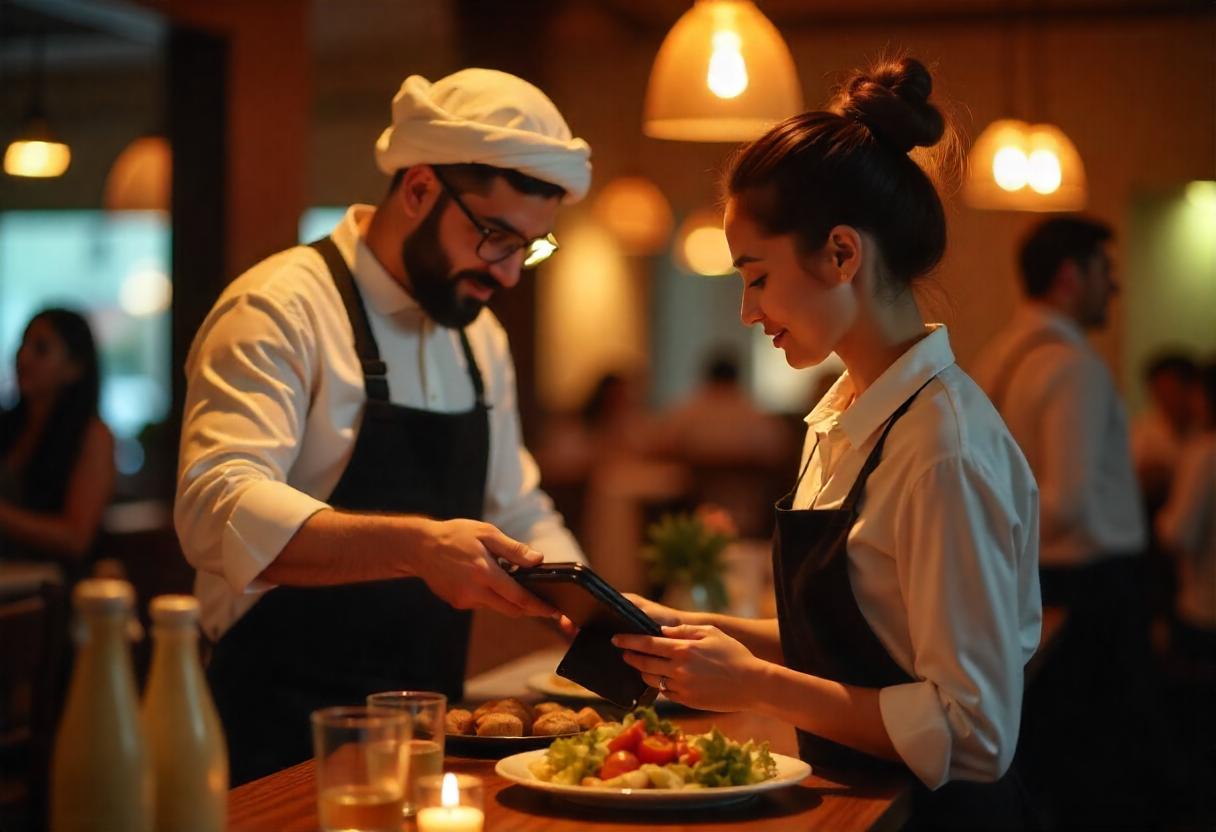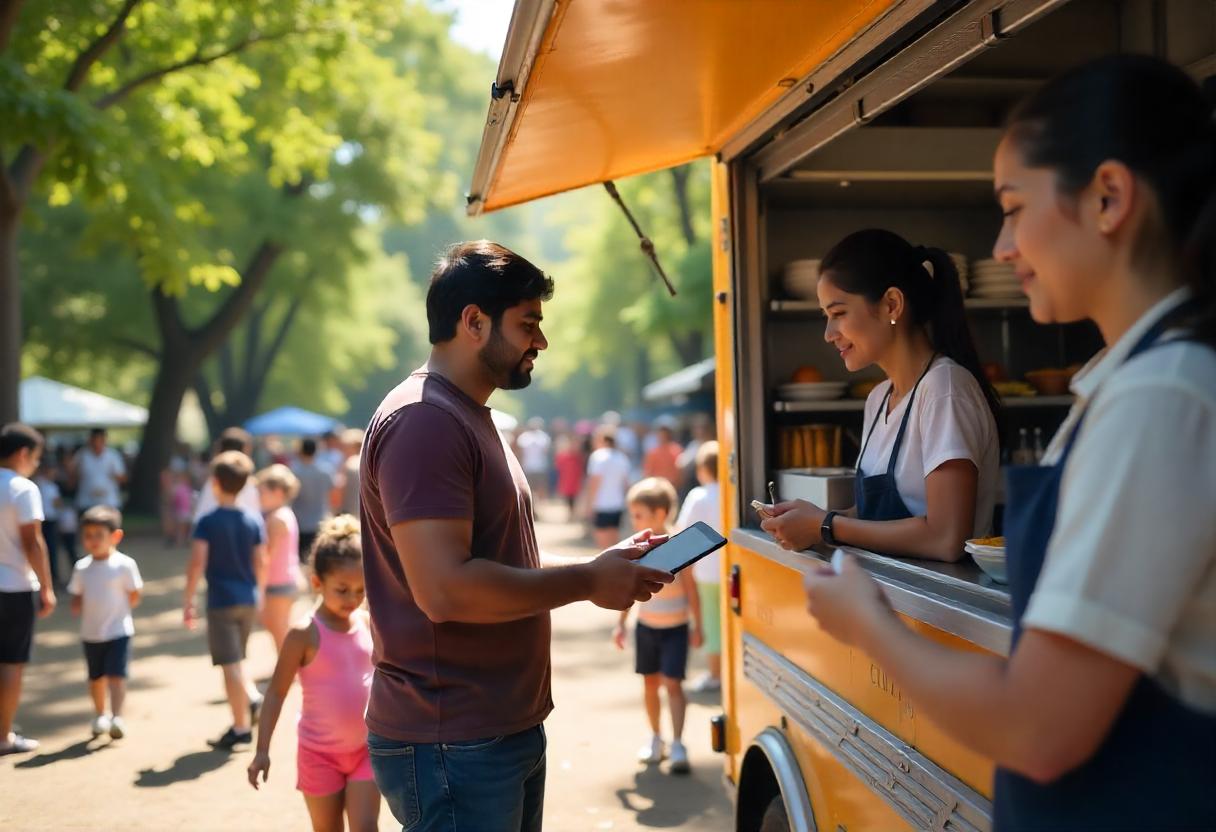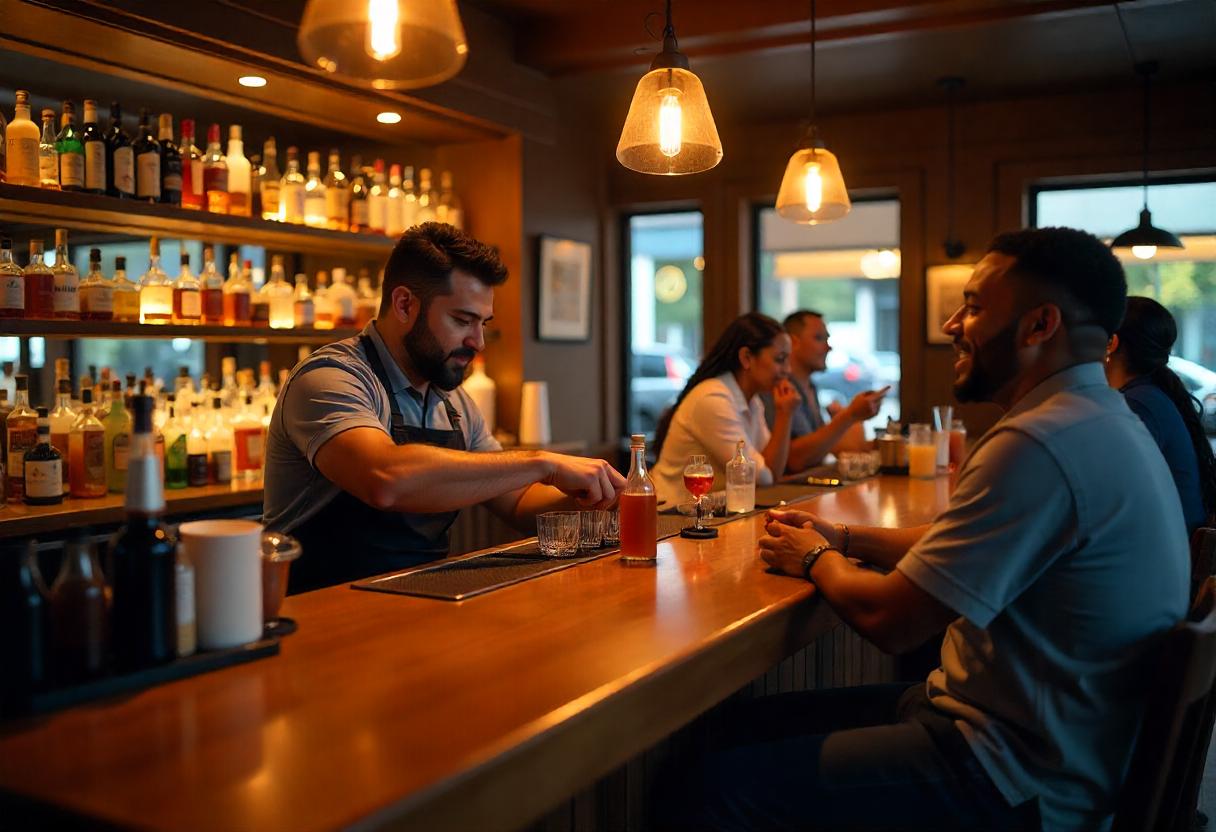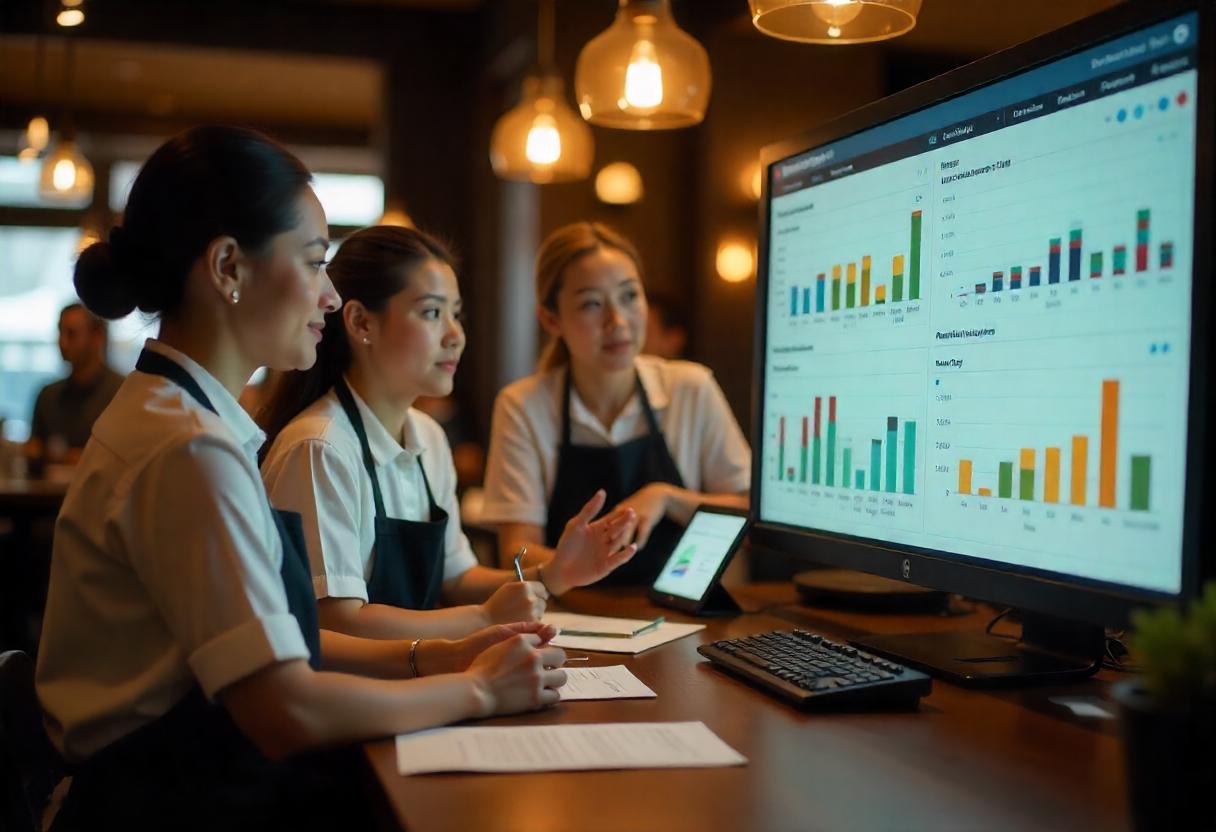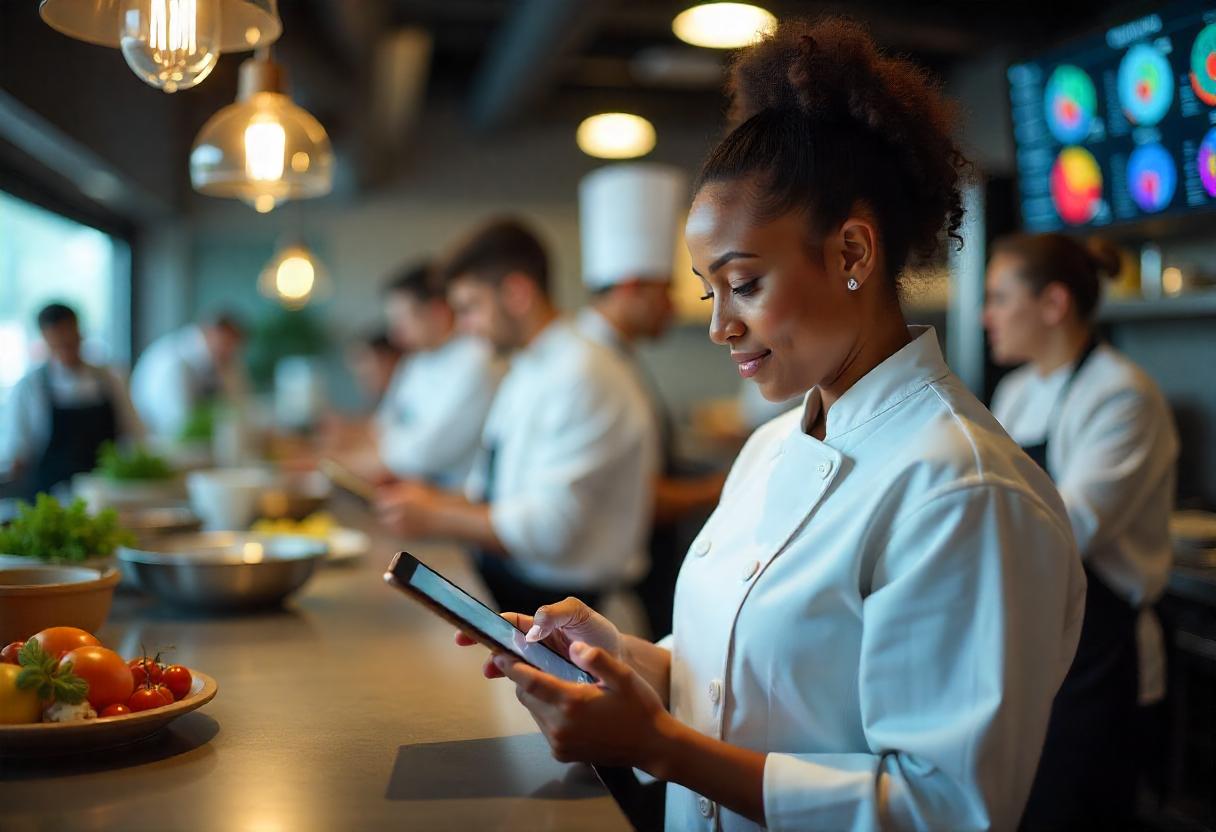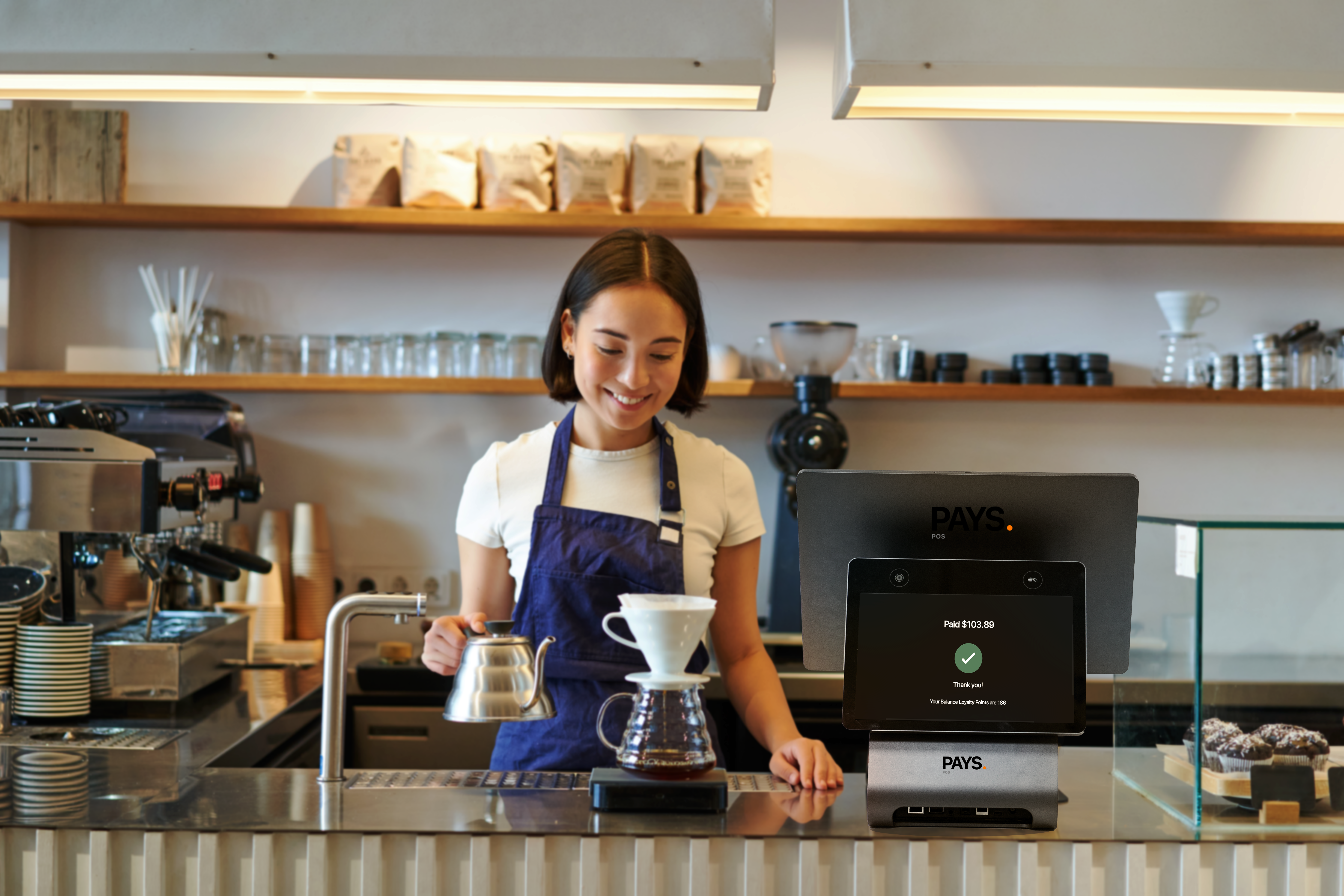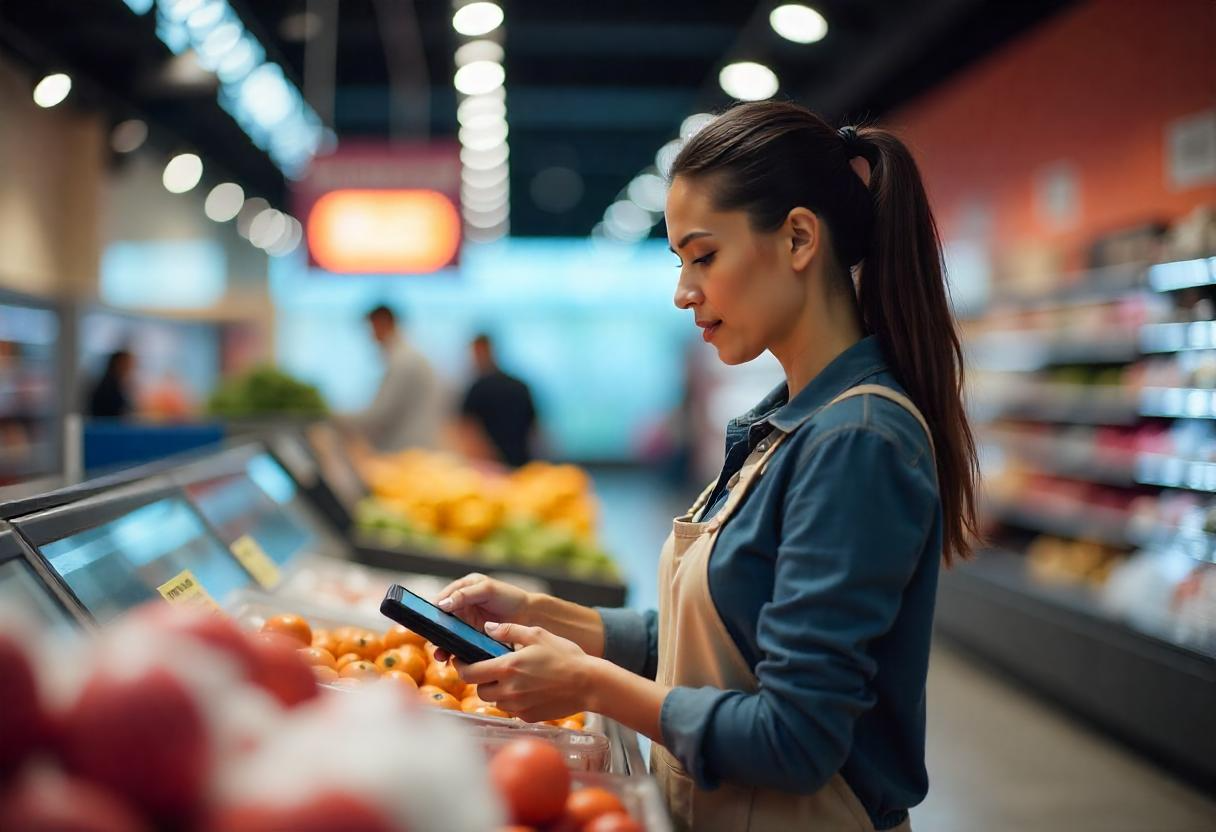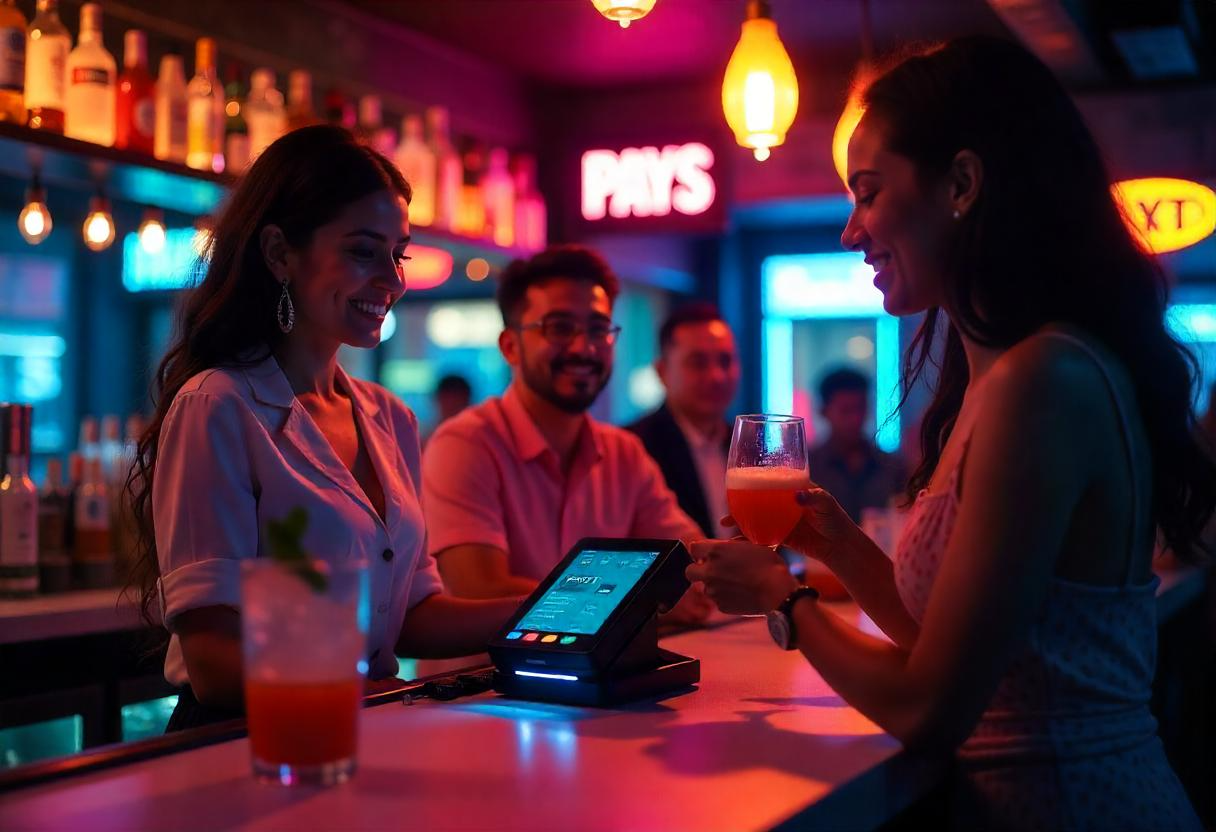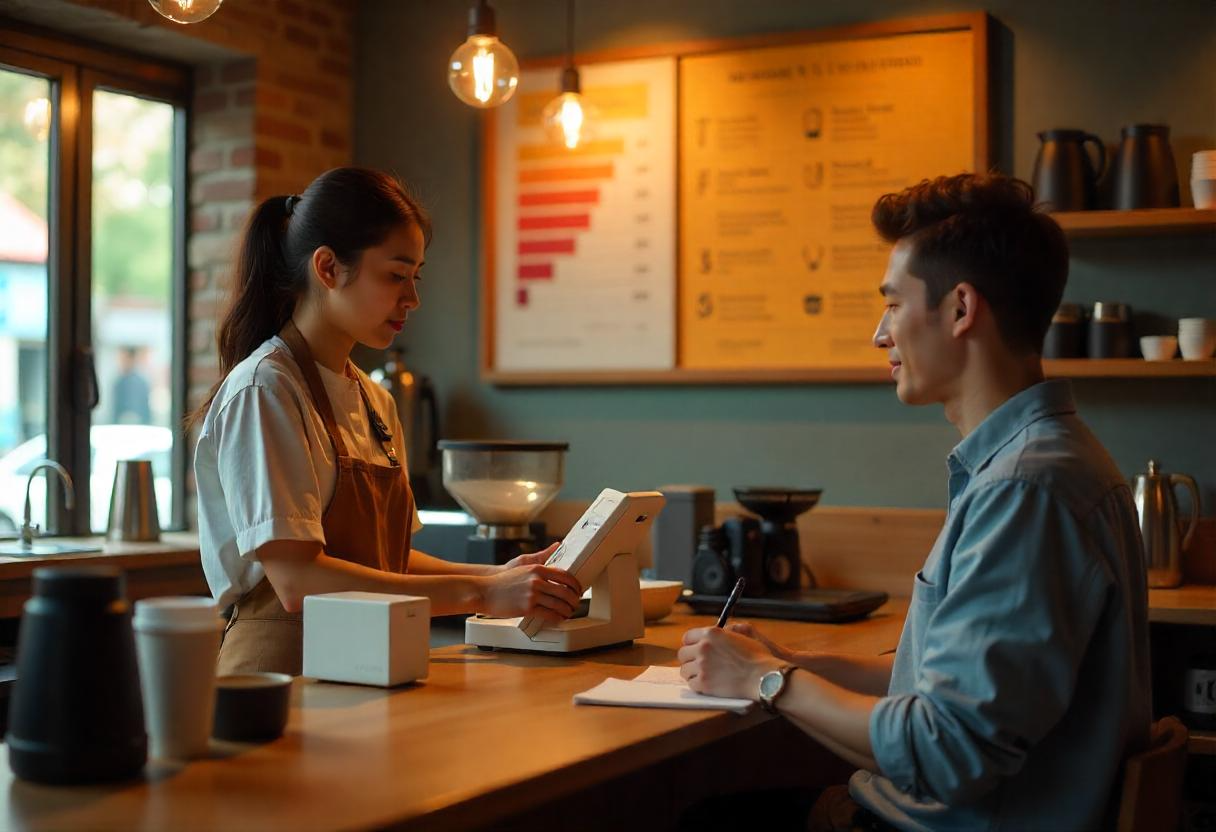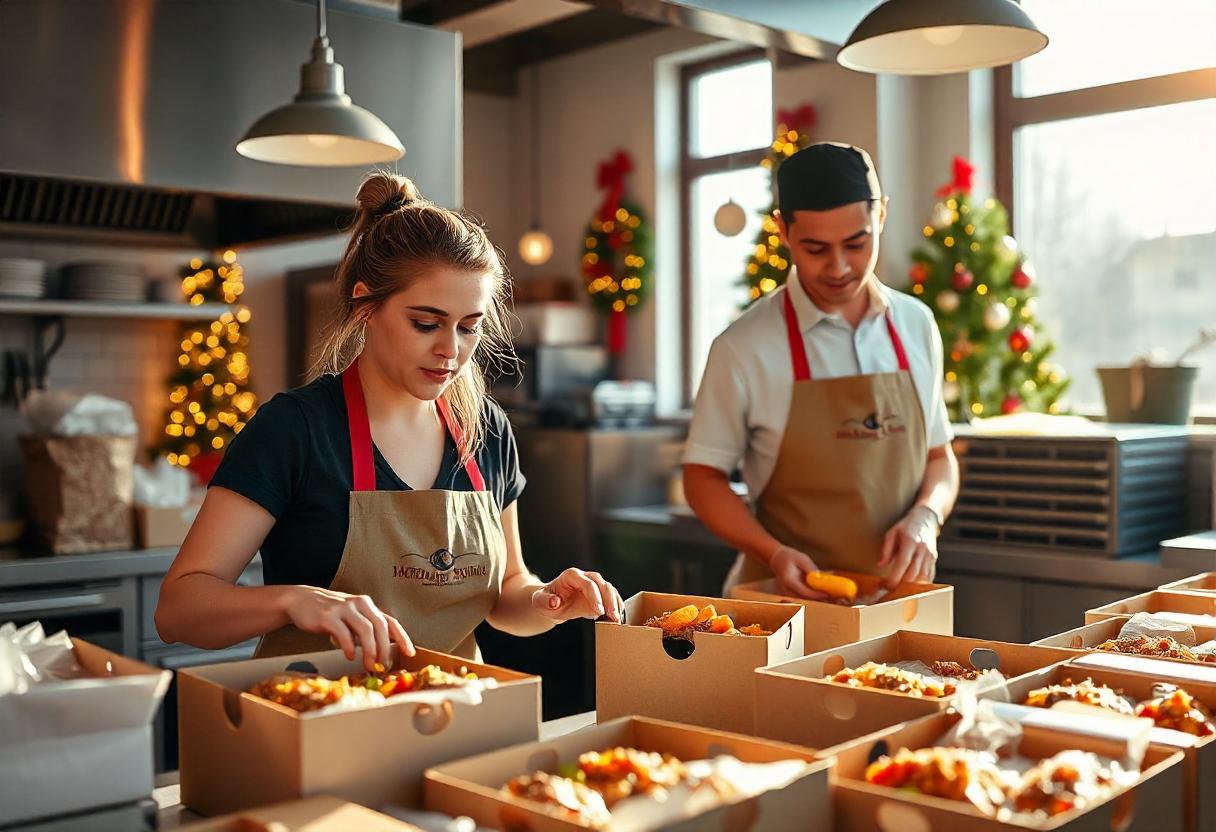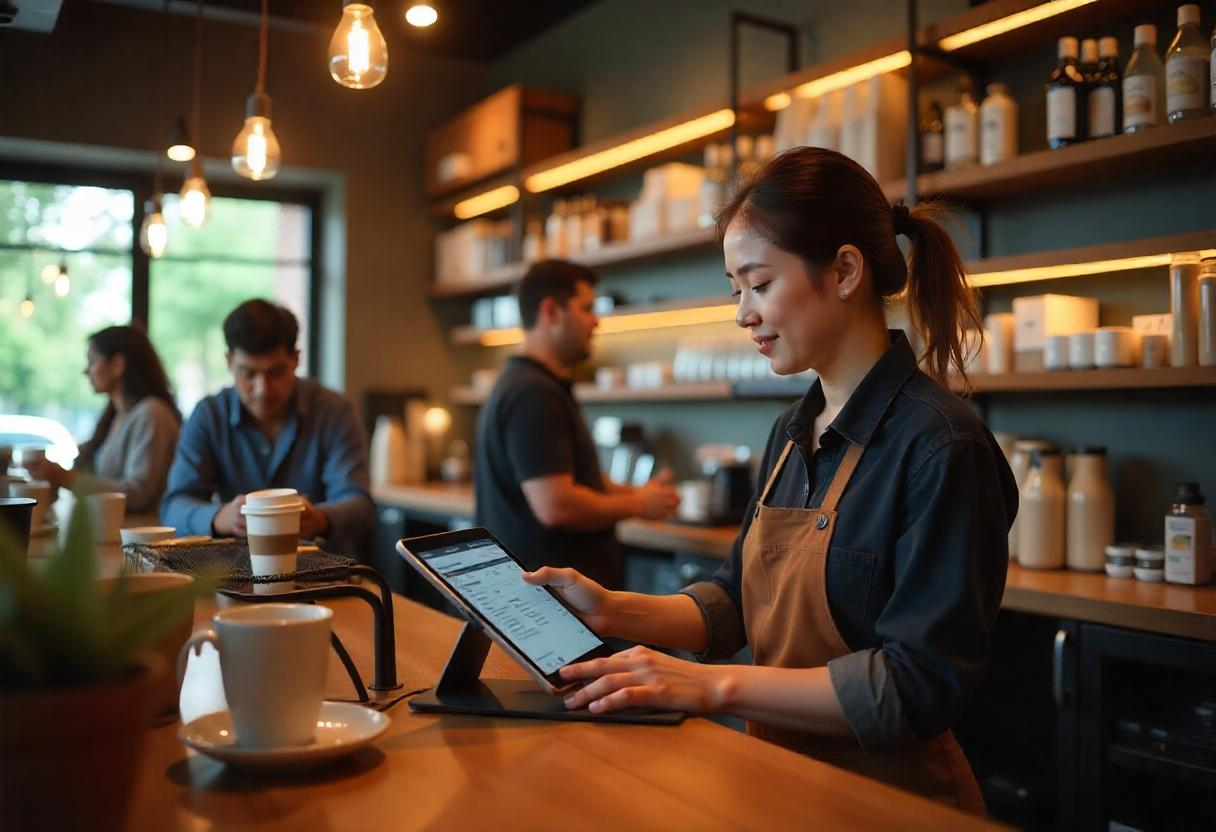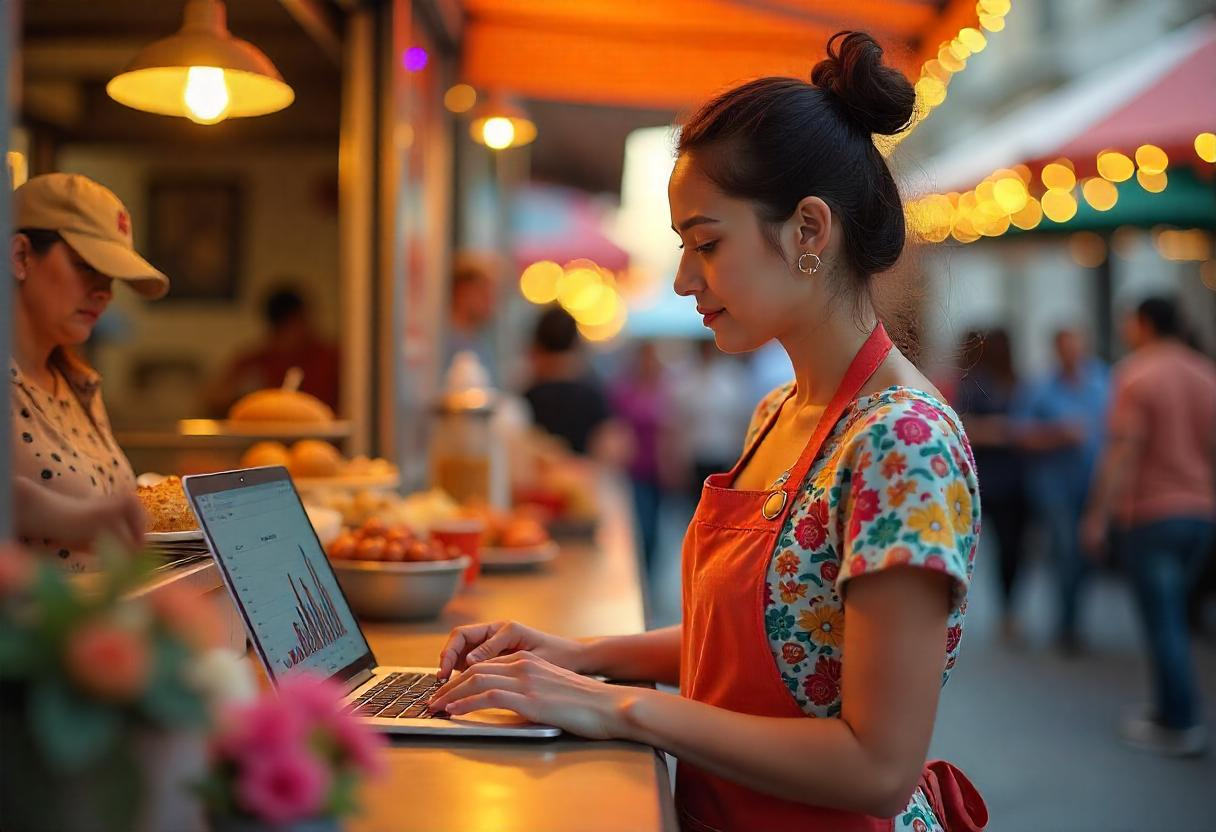- Running a successful restaurant involves more than just serving delicious food; it requires efficient management, excellent customer service, and seamless operations. A crucial element that contributes to all these factors is a Point of Sale (POS) system. For restaurants, a POS system is more than just a tool for processing transactions—it’s the heartbeat of the business. In this comprehensive guide, we will explore the significance of the POS of a restaurant and delve into various related concepts, such as POS systems for food trucks, and cloud POS solutions.

Understanding the POS System of a Restaurant
A POS system in a restaurant serves multiple purposes. Traditionally, it was merely a means to manage payments. However, modern POS systems have evolved to handle inventory management, customer data, sales tracking, employee management, and customer loyalty programs. A POS system can streamline operations, reduce errors, and significantly enhance the overall customer experience when properly utilized.
For restaurants, having a robust POS system is not just a convenience but a necessity. It can assist with the following:
Sell Point: Maximizing Efficiency with POS Systems
Order Management: Efficiently manage orders from dine-in, takeout, and delivery channels, ensuring timely and accurate order fulfillment.
Inventory Management: Keep track of ingredients and supplies to prevent wastage and stockouts.
Employee Management: Manage staff schedules, monitor performance, and calculate payroll seamlessly.
Customer Relationship Management (CRM): Retain valuable customer information to provide personalized experiences and promotions.
The concept of a selling point revolves around optimizing every touchpoint with the customer to maximize sales and enhance their experience. For restaurants, leveraging a POS system as a selling point can lead to a more efficient and profitable operation. Here’s how:
Upselling and Cross-Selling: A POS system can suggest add-ons or complementary items, such as recommending a dessert after the main course, helping staff to upsell and cross-sell without being intrusive.
Quick Transactions: A faster checkout process is critical in restaurants, especially during peak hours. A POS system ensures quick and secure transactions, reducing wait times and enhancing customer satisfaction.
Promotions and Discounts: With a POS system, you can easily manage and track promotions, discounts, and loyalty programs to encourage repeat business.

POS System for Food Trucks: Flexibility and Mobility
Food trucks have become a popular and dynamic part of the food industry. However, managing a food truck comes with its own set of challenges, such as limited space, mobility, and the need for quick service. Here, a POS system for food trucks becomes invaluable.
Mobility: Unlike traditional restaurants, food trucks need a POS system that is portable and easy to set up anywhere. Mobile POS systems, often tablet-based, allow food truck operators to process orders and payments efficiently, whether they are parked on a busy street or at an event.
Offline Mode: Given that food trucks often operate in locations with unstable internet connections, having a POS system with an offline mode ensures that orders can be processed without disruption, and data is synchronized once connectivity is restored.
Inventory Management: A POS system can help food truck operators keep track of stock levels, minimizing waste and ensuring that popular items are always available.
Customer Data: Even for a food truck, building customer relationships is crucial. A POS system can store customer preferences and order history, enabling personalized service.
Cloud POS: The Future of Restaurant Management
As technology evolves, so does the POS system. Traditional, on-premise systems are becoming less popular, with more restaurants adopting cloud POS solutions. A cloud POS system is a web-based platform that stores data on remote servers, accessible from anywhere with an internet connection.
Accessibility: With cloud POS systems, restaurant owners and managers can access real-time data and analytics from any device, whether they are on-site or managing operations remotely.
Scalability: Cloud POS systems offer growing restaurants or chains the flexibility to add or remove features as needed, making them a cost-effective solution.
Integration: Cloud POS systems can easily integrate with other tools and platforms, such as accounting software, online ordering systems, and delivery platforms, providing a seamless workflow.
Data Security: Cloud-based solutions offer robust data security measures, including regular backups and encryption, ensuring sensitive customer and business data is protected.
Choosing the Right POS System for Your Restaurant
Selecting the right POS system for your restaurant can be a game-changer. Here are some factors to consider:
Ease of Use: A user-friendly interface is crucial to minimize training time for staff and reduce errors during operations.
Customization: Your POS system should be customizable to fit the specific needs of your restaurant, whether it’s a casual diner, a fine dining establishment, or a food truck.
Support and Maintenance: Choose a POS provider that offers 24/7 support and regular updates to keep your system running smoothly.
Cost: Consider the upfront and ongoing costs associated with the POS system. While some systems may seem more affordable initially, they may incur higher costs in terms of maintenance and additional features.

How Pays POS Can Help Enhance Your Restaurant Operations
Integrating a powerful and efficient POS system like Pays POS can significantly enhance the day-to-day operations of your restaurant. Pays POS offers a range of features designed specifically for the food and beverage industry:
User-Friendly Interface: Pays POS has an intuitive interface that minimizes training time for new staff and ensures smooth operations.
Comprehensive Reporting: Get real-time insights into sales, inventory, and customer data, helping you make informed business decisions.
Integration Capabilities: Pays POS seamlessly integrates with various tools, such as online ordering platforms, accounting software, and loyalty programs.
Cloud-Based Solution: Being a cloud POS, Pays POS provides flexibility and scalability, ensuring your system grows with your business needs.
24/7 Support: With round-the-clock support, Pays POS ensures your business runs smoothly without any downtime.
Conclusion
Investing in a reliable and efficient POS system is a strategic move that can elevate your restaurant’s operations, improve customer satisfaction, and drive growth. Whether you run a traditional restaurant, a food truck, or a chain, choosing the right POS system—such as Pays POS—can simplify management and enhance overall efficiency.
By understanding the unique needs of your restaurant and leveraging the capabilities of a modern POS system, you can position your business for success in a competitive market.
FAQ
What is POS with an example?
A Point of Sale (POS) system is the place where a customer makes a payment for goods or services. For example, when you pay for groceries at a supermarket using a credit card reader, that’s a POS system.
What does POS mean in a business?
In business, POS refers to the location or system where sales transactions occur, such as a cash register or digital payment platform in retail or hospitality settings.
What is POS and how does it work?
A POS system allows businesses to process sales transactions by scanning items, calculating totals, applying discounts, and accepting various forms of payment. It also tracks inventory and customer data.
What is the legal definition of point of sale?
The legal definition of Point of Sale (POS) refers to the physical location where a sale is completed and ownership of goods is transferred to the buyer, along with payment.
What is meant by point of sale?
Point of Sale (POS) refers to the place or system where a sales transaction happens, such as a checkout counter in a store or a digital payment terminal in an online setting.
What does POS stand for in the workplace?
In the workplace, POS stands for Point of Sale, which is the system used by businesses to process transactions, manage sales, and monitor inventory.
What is an example of POS?
An example of a POS system is a restaurant where servers use a touchscreen device to take orders, process payments, and track customer orders in real-time.
What does POS transaction mean?
A POS transaction is any sale where payment is made at the Point of Sale, such as paying for an item in-store or processing a card payment through a terminal.
What does the POS represent?
The POS represents the point where a sale transaction occurs, which includes the system that processes payments, manages inventory, and tracks customer interactions.
What does POS mean in a business?
In business, POS refers to the system or location where sales are processed, including collecting payments, issuing receipts, and managing sales data.
What is an example of a POS transaction?
An example of a POS transaction is paying for your coffee at a café using a credit card and receiving a receipt from the POS system.
What is considered a POS transaction?
A POS transaction is considered any sale where a payment method is used, such as credit cards, debit cards, or mobile payments, at the point of purchase.
What is an example of a POS payment?
An example of a POS payment is when you use your debit card at a retail store’s checkout terminal to purchase clothes, and the transaction is processed by the POS system.
What is POS and example?
POS stands for Point of Sale, and an example is when a cashier uses a digital terminal to process a customer’s payment and print a receipt in a store.

